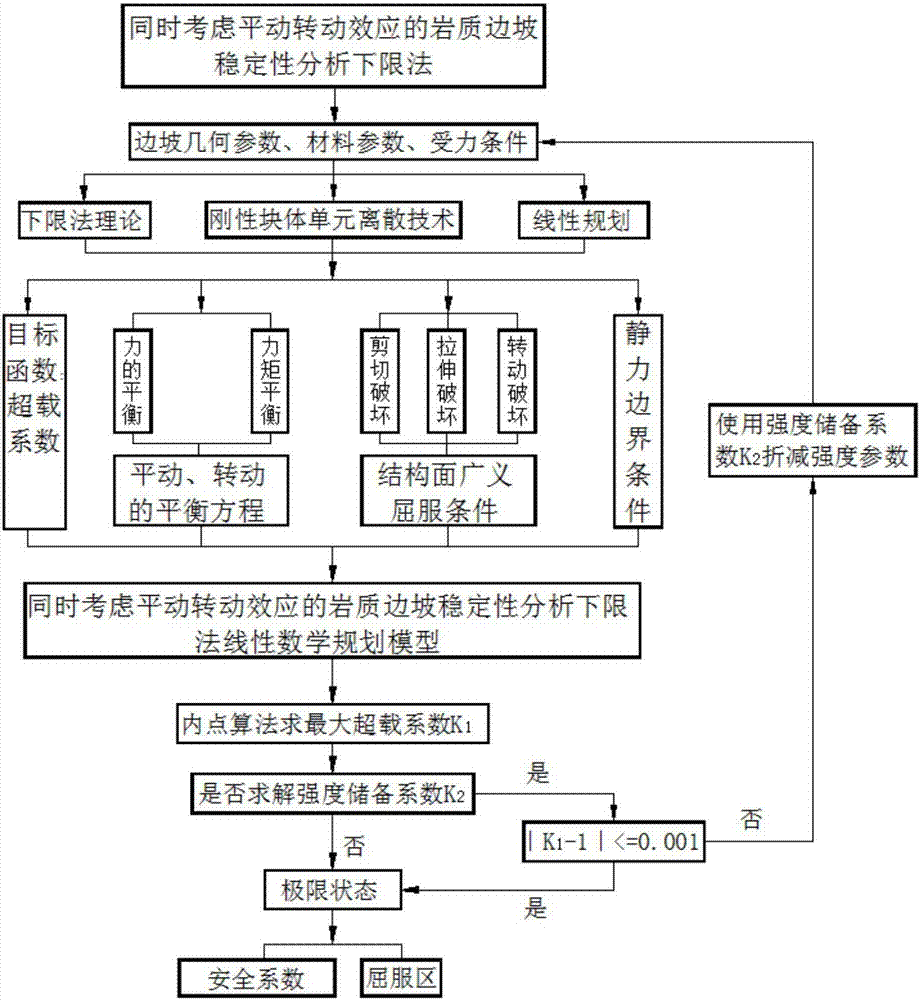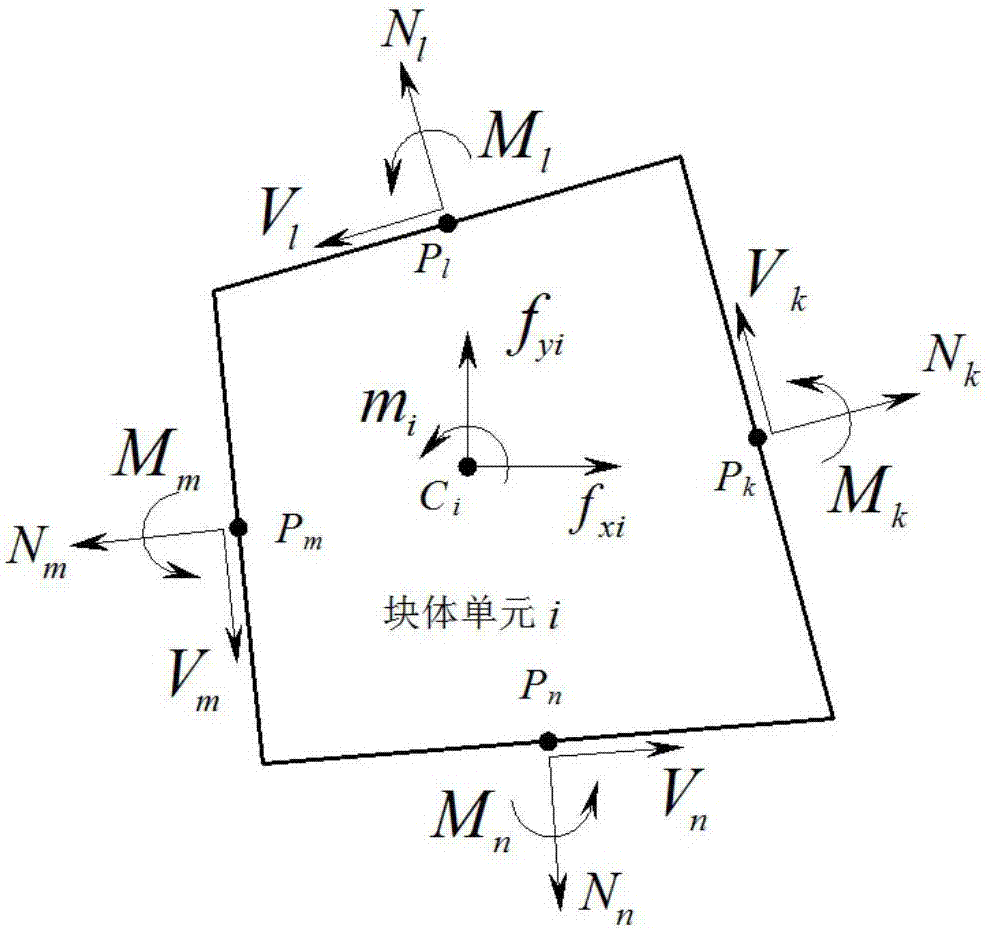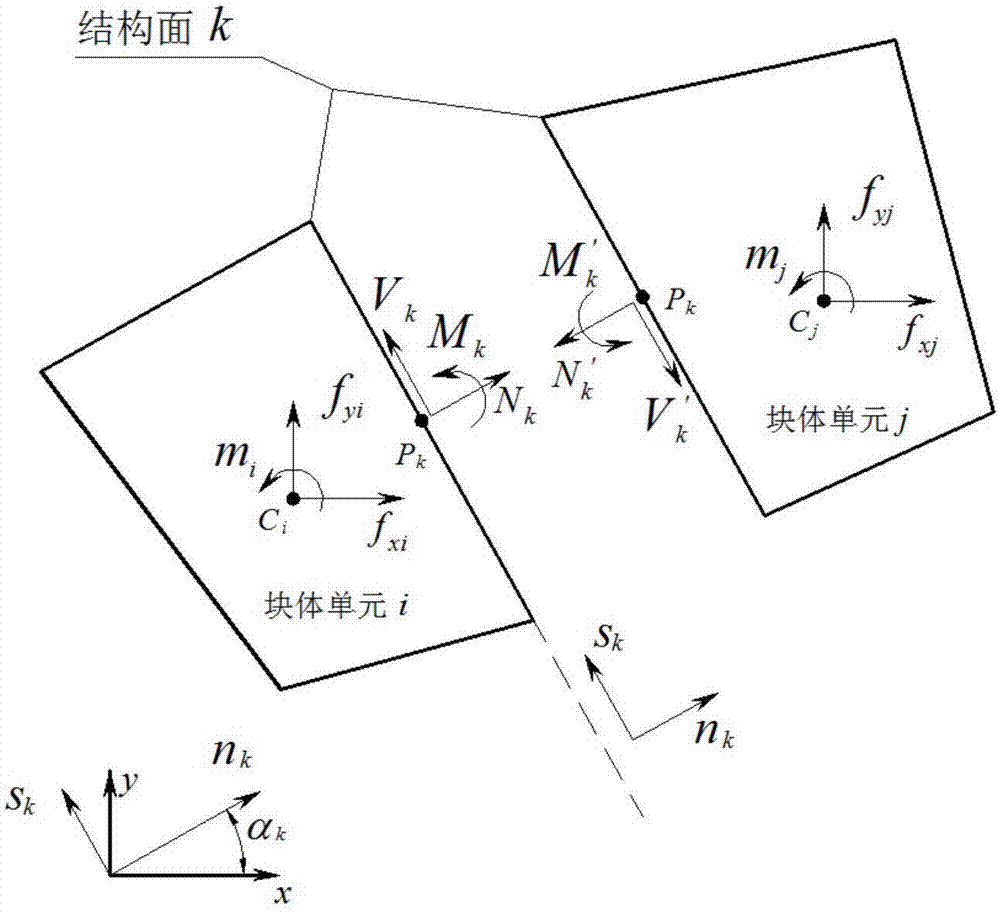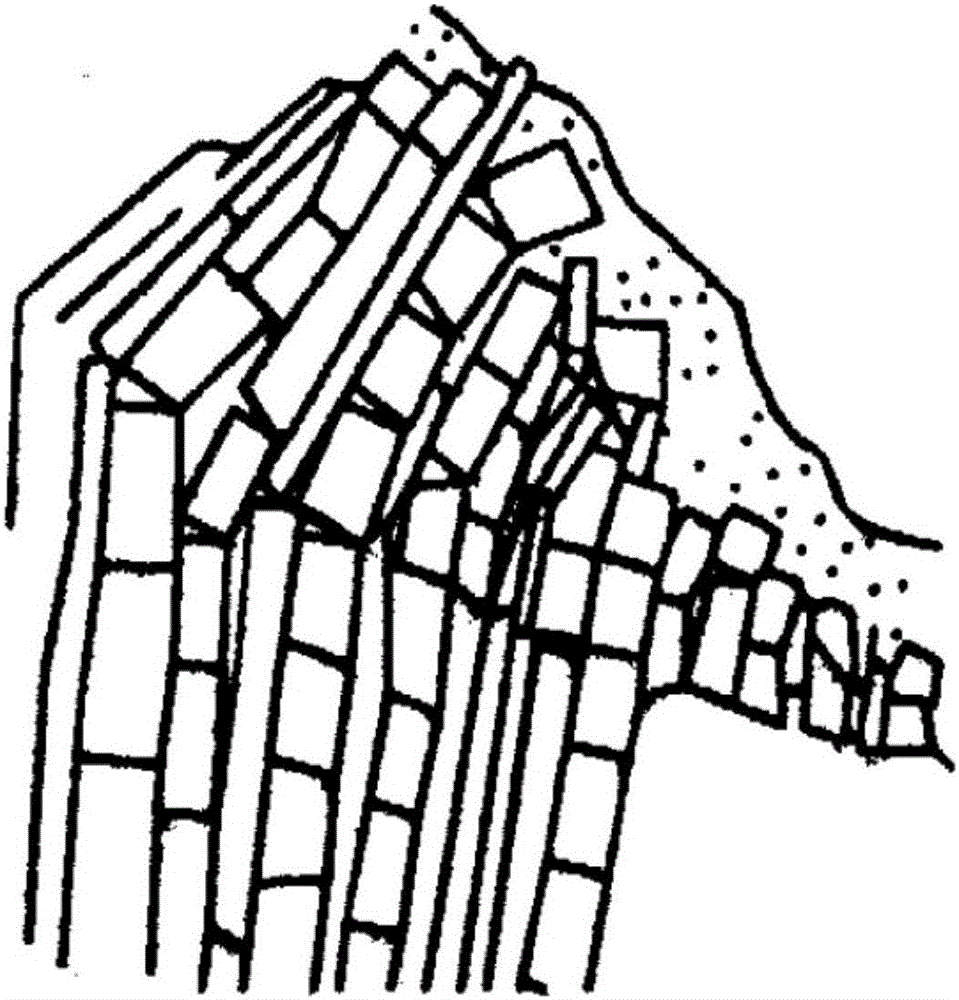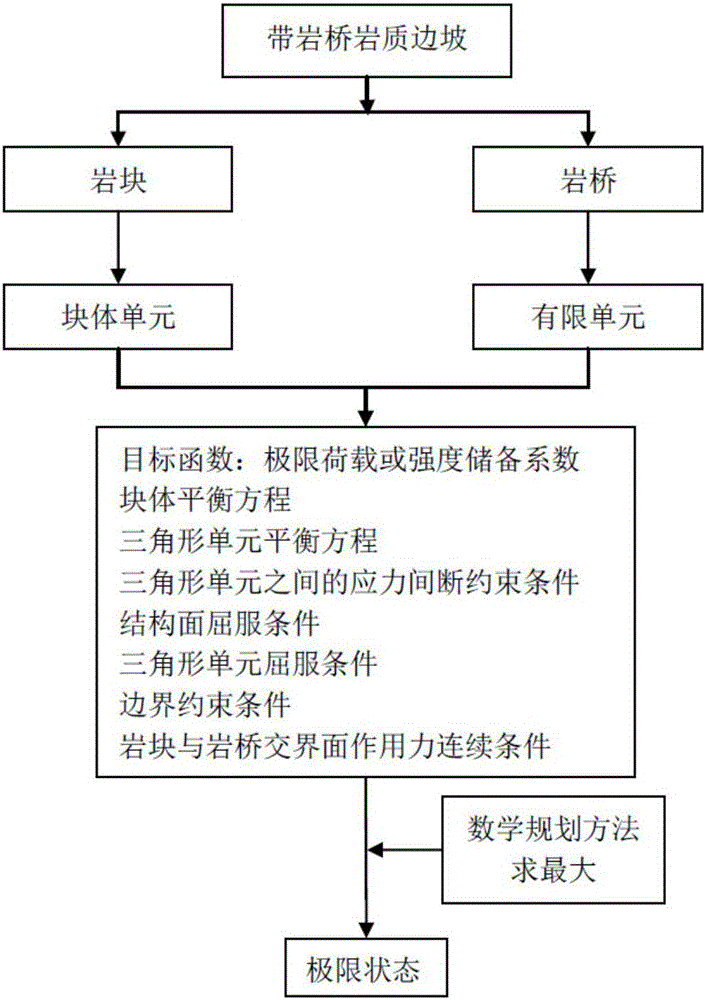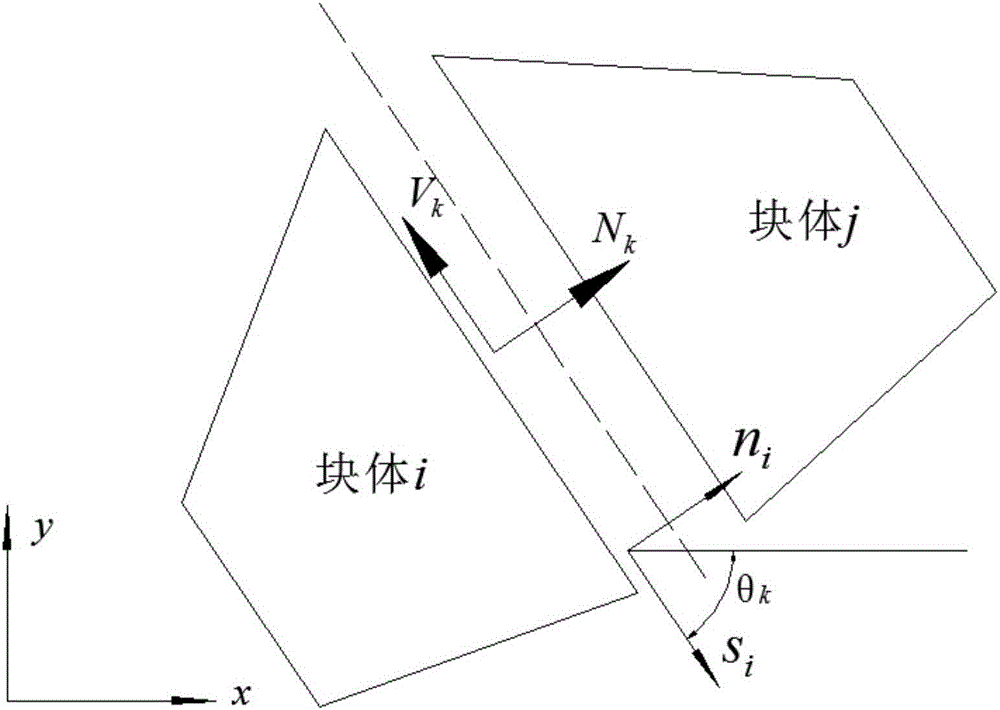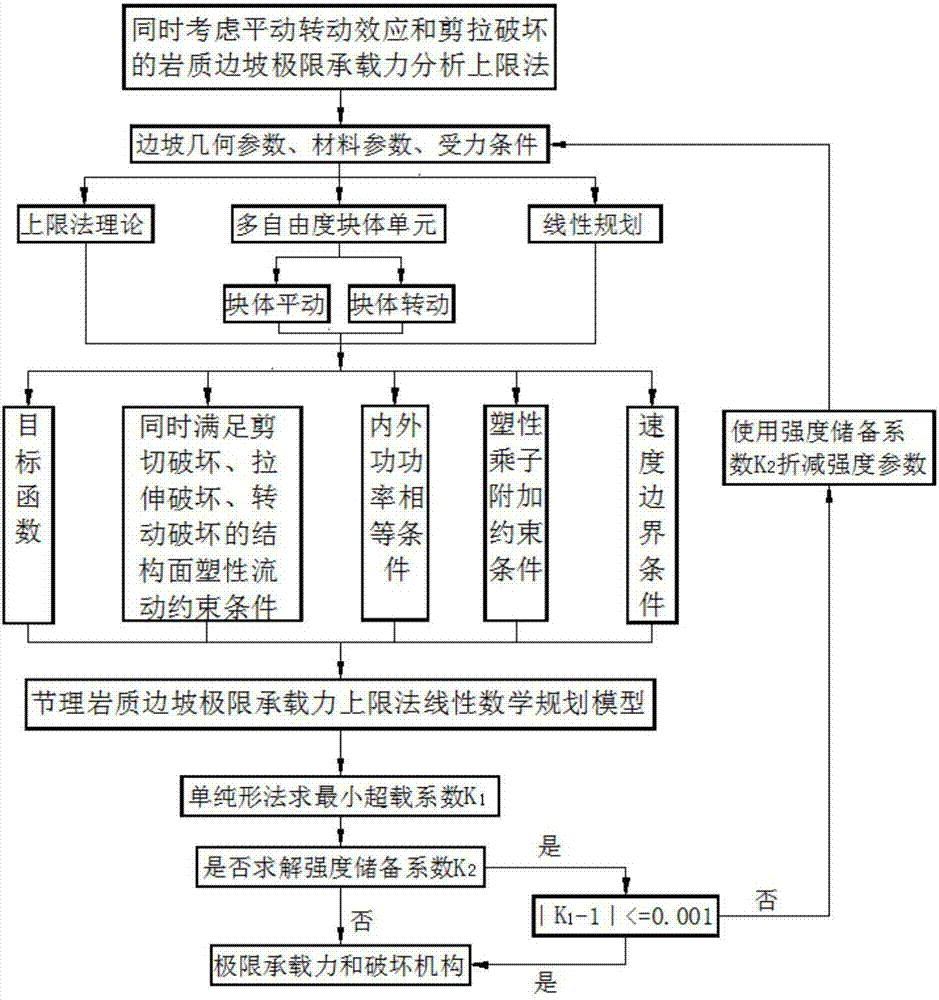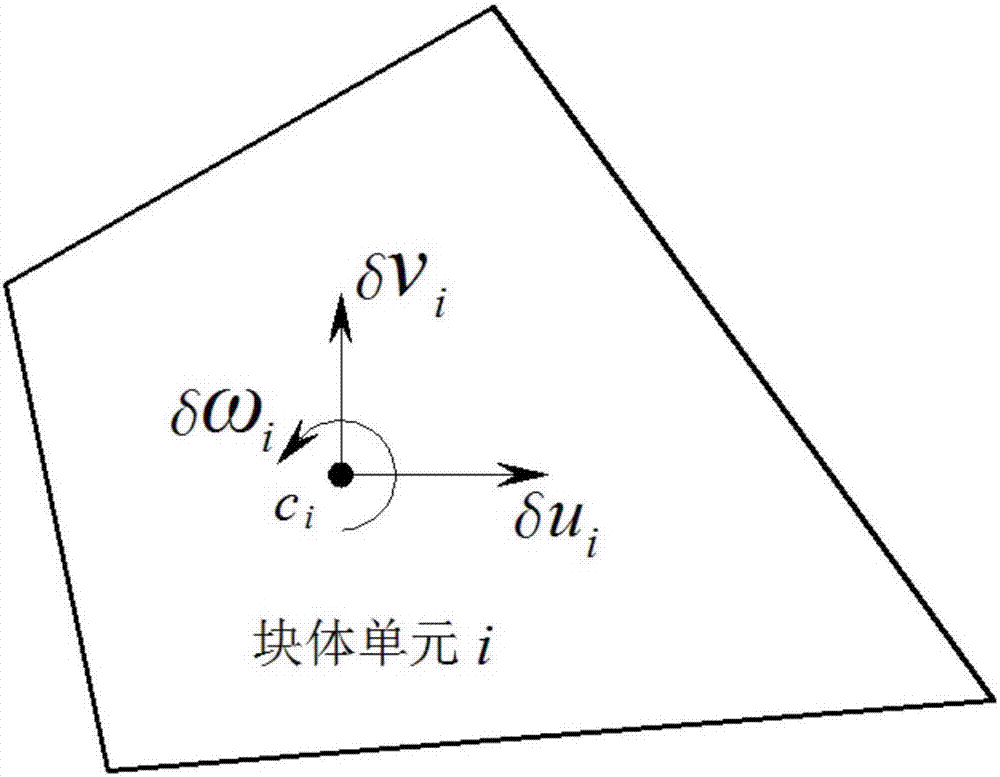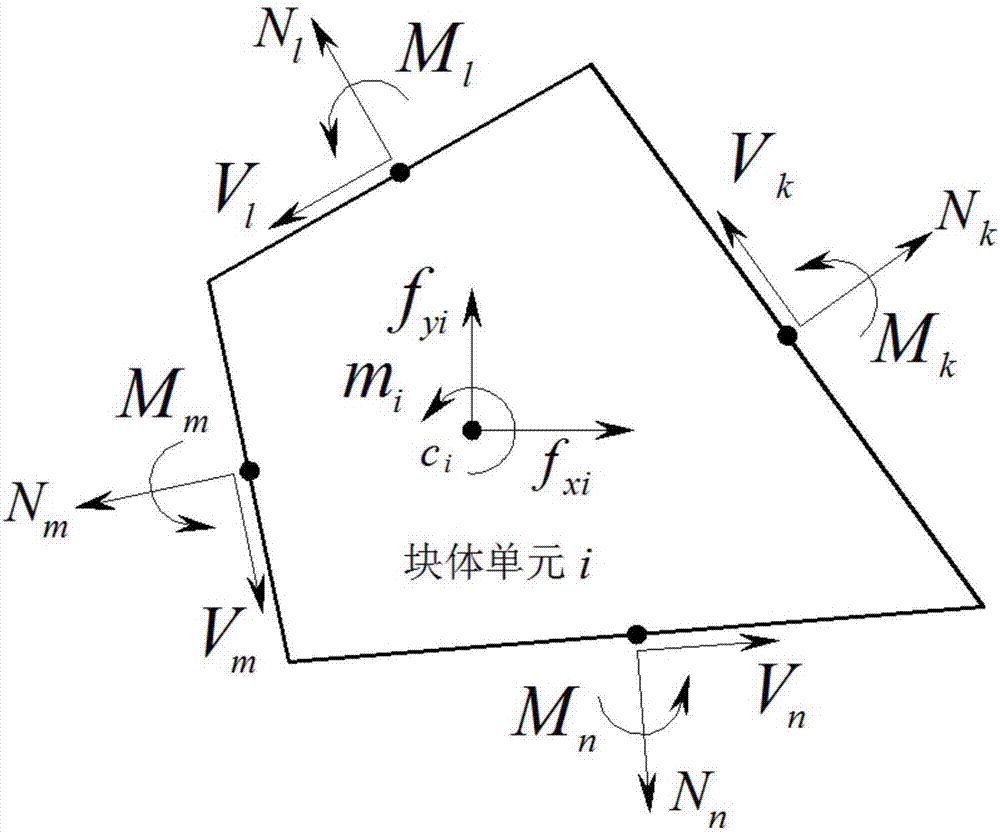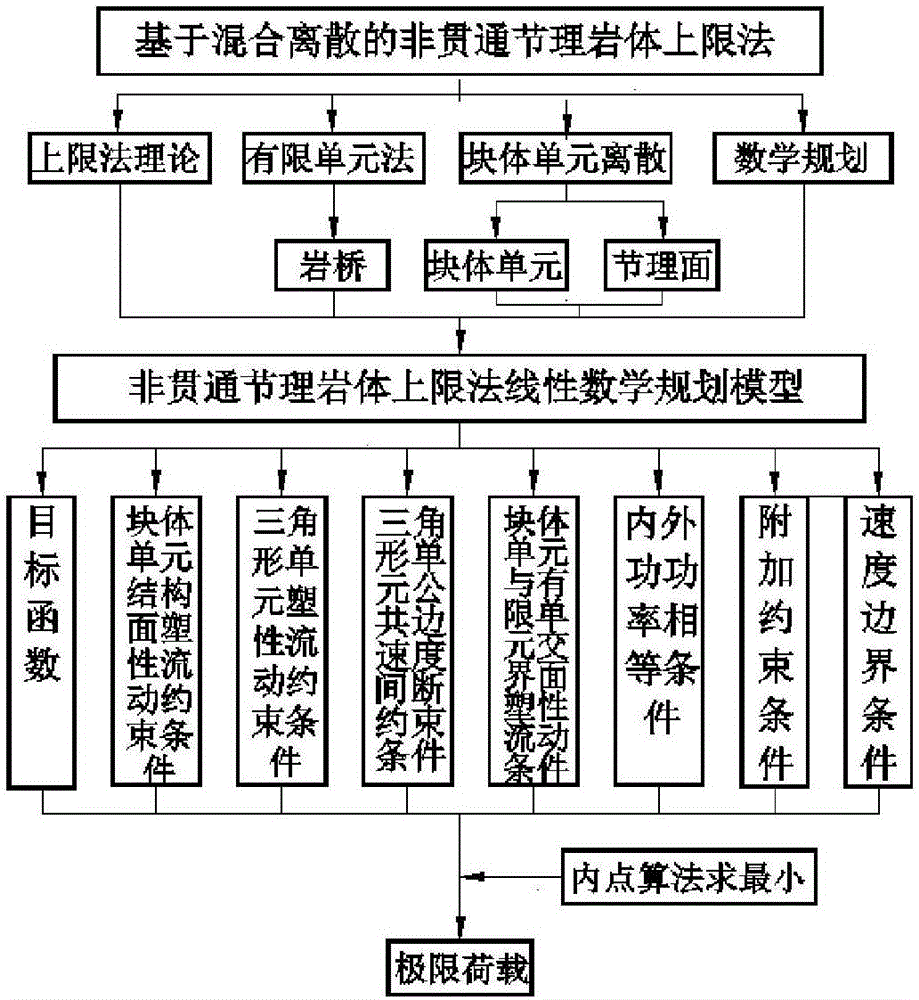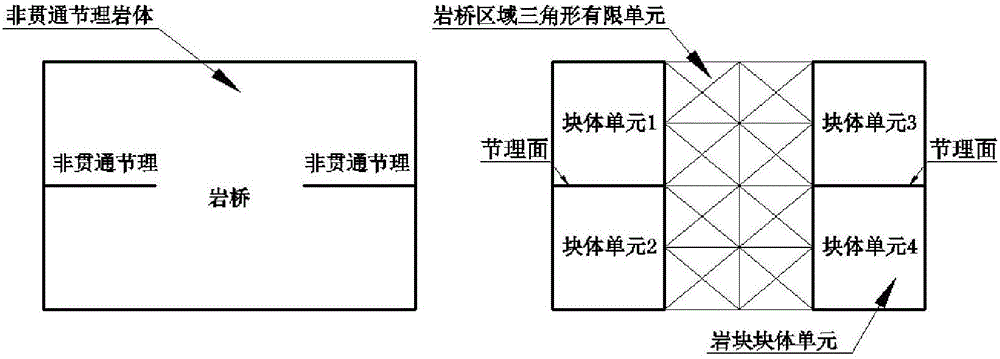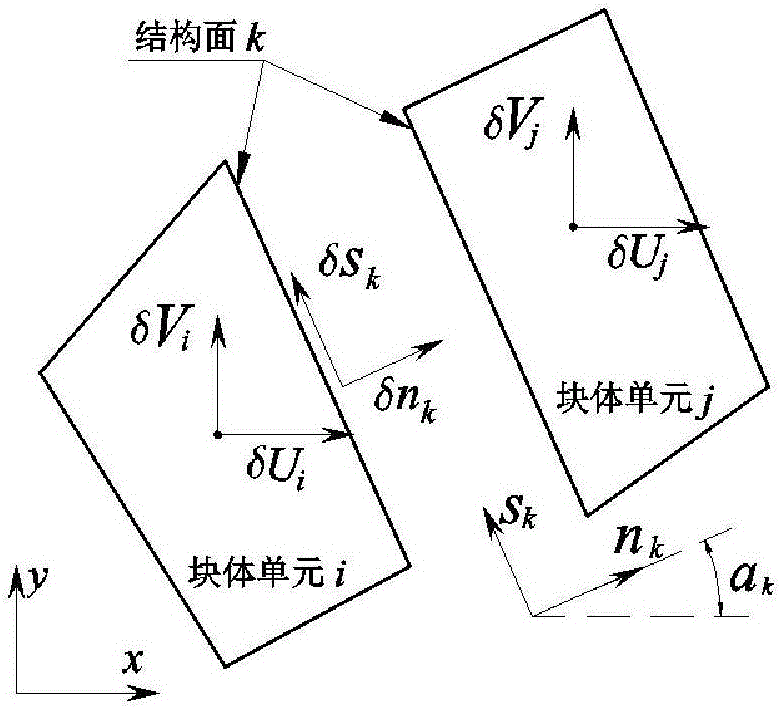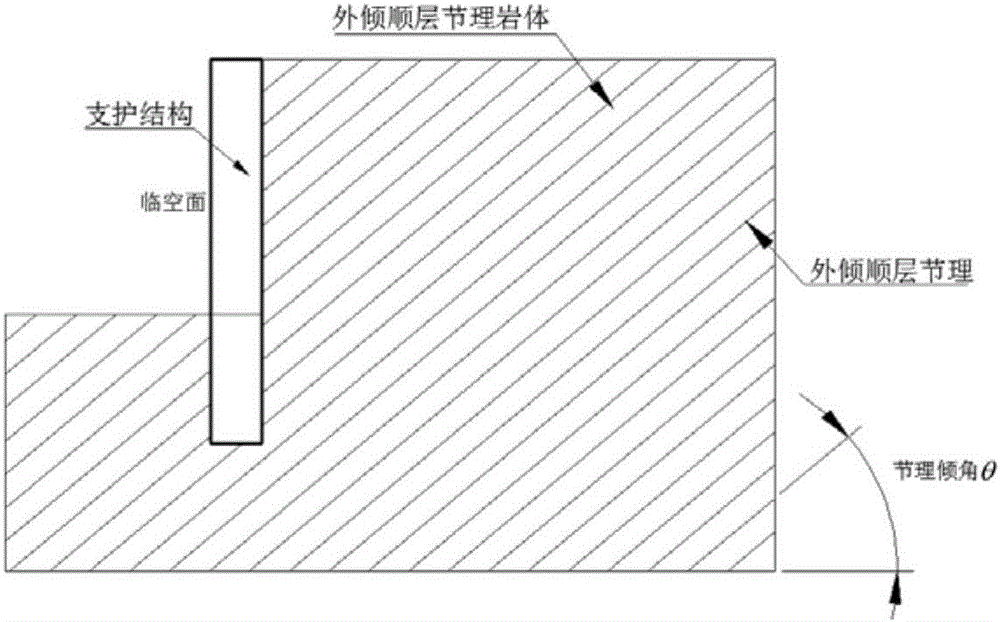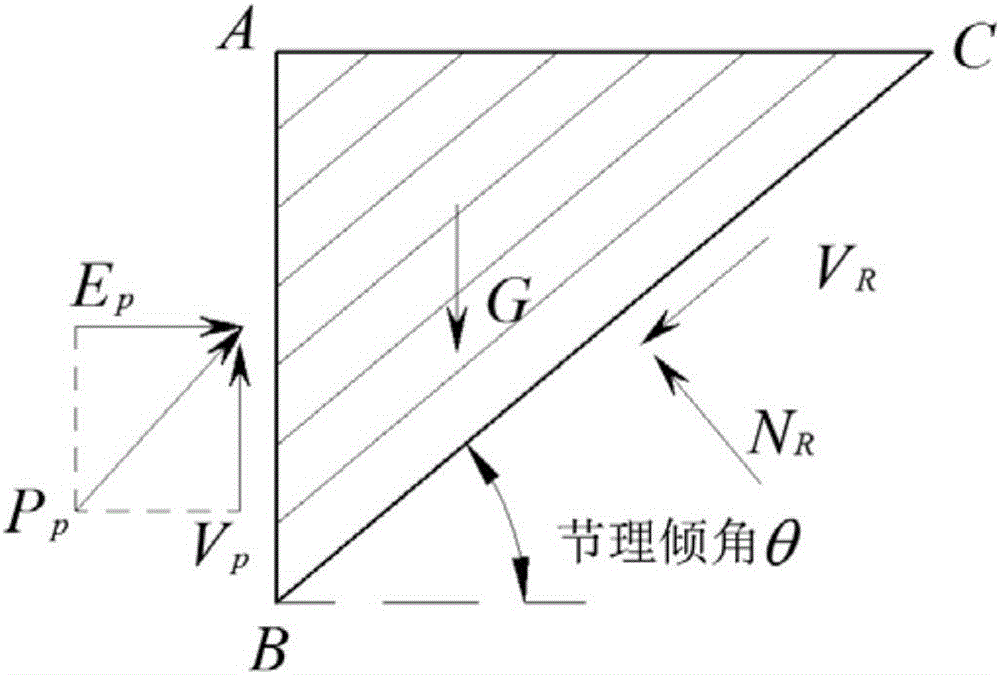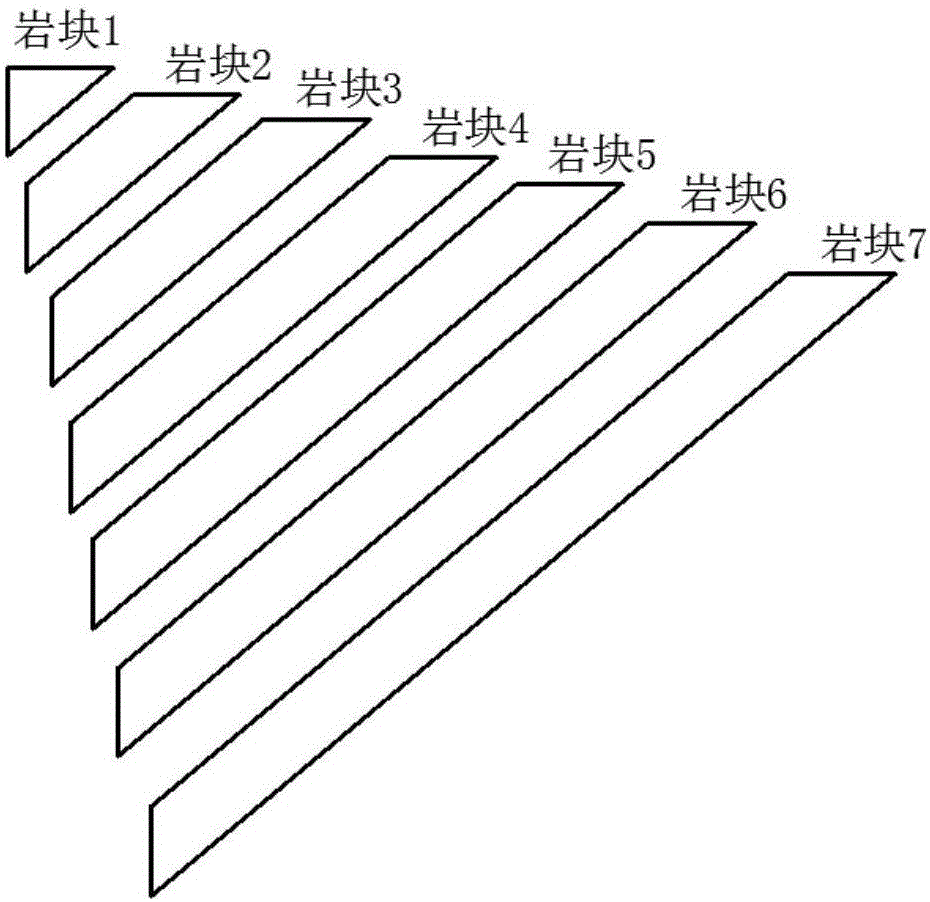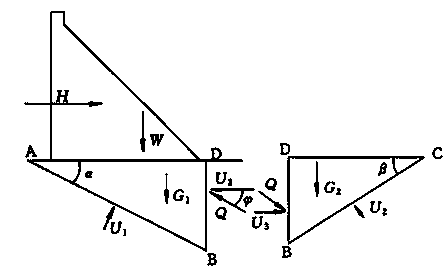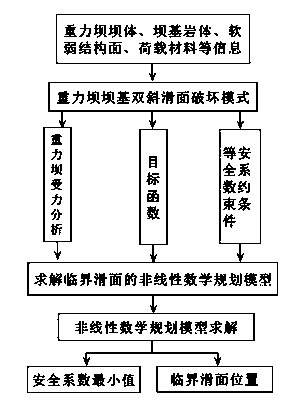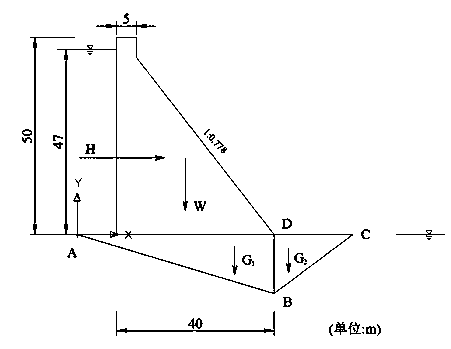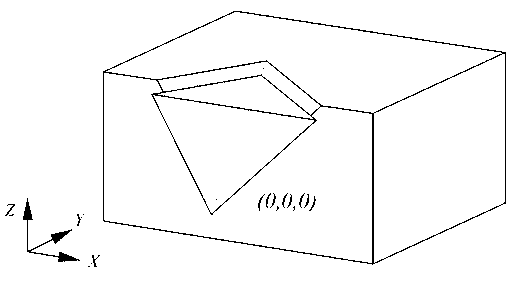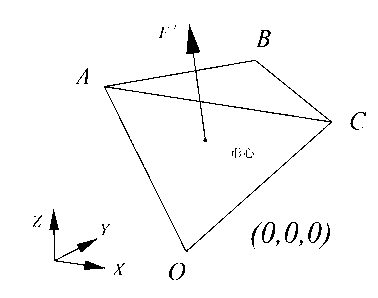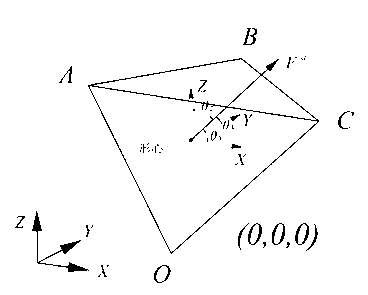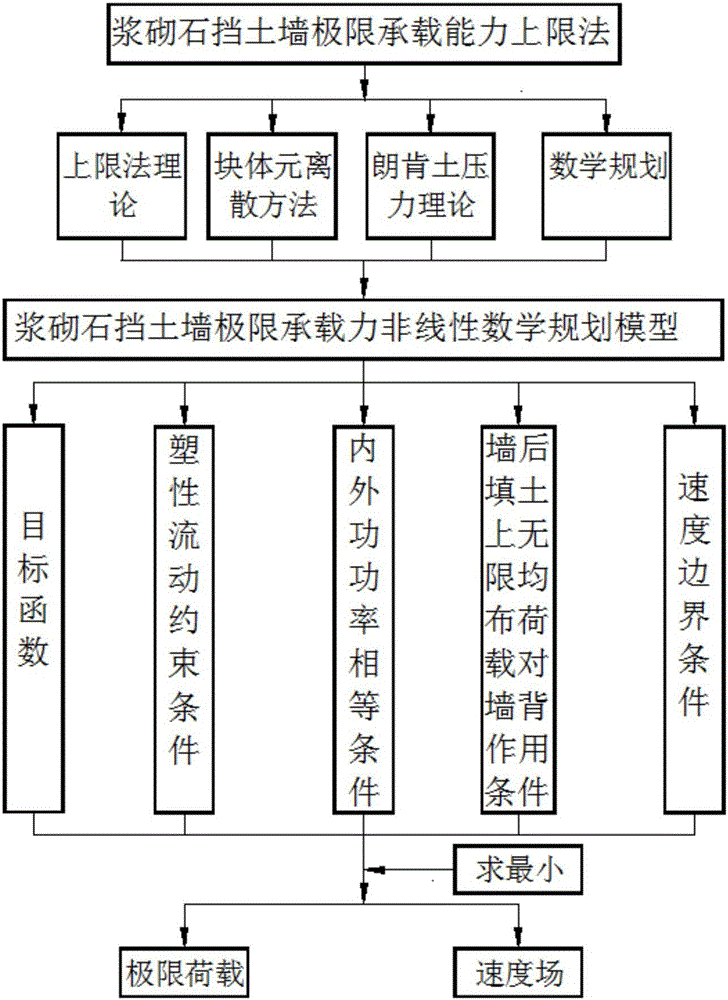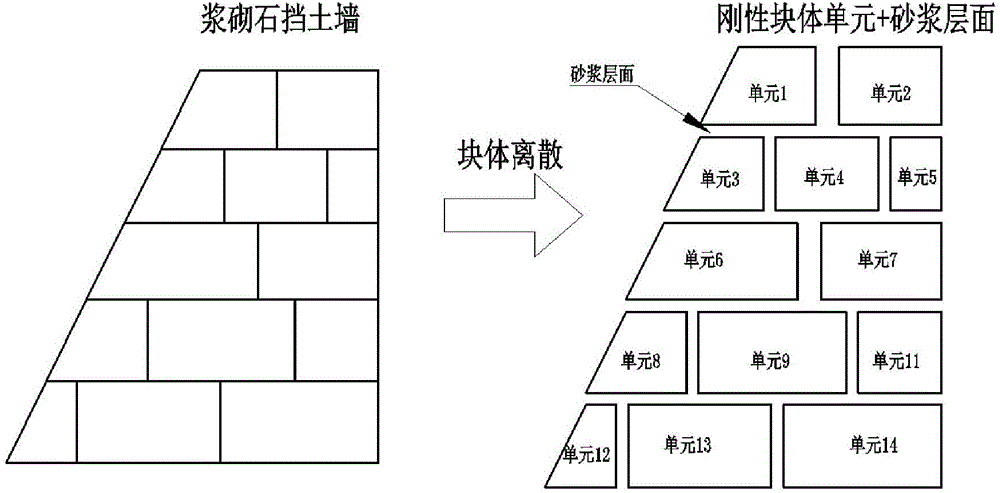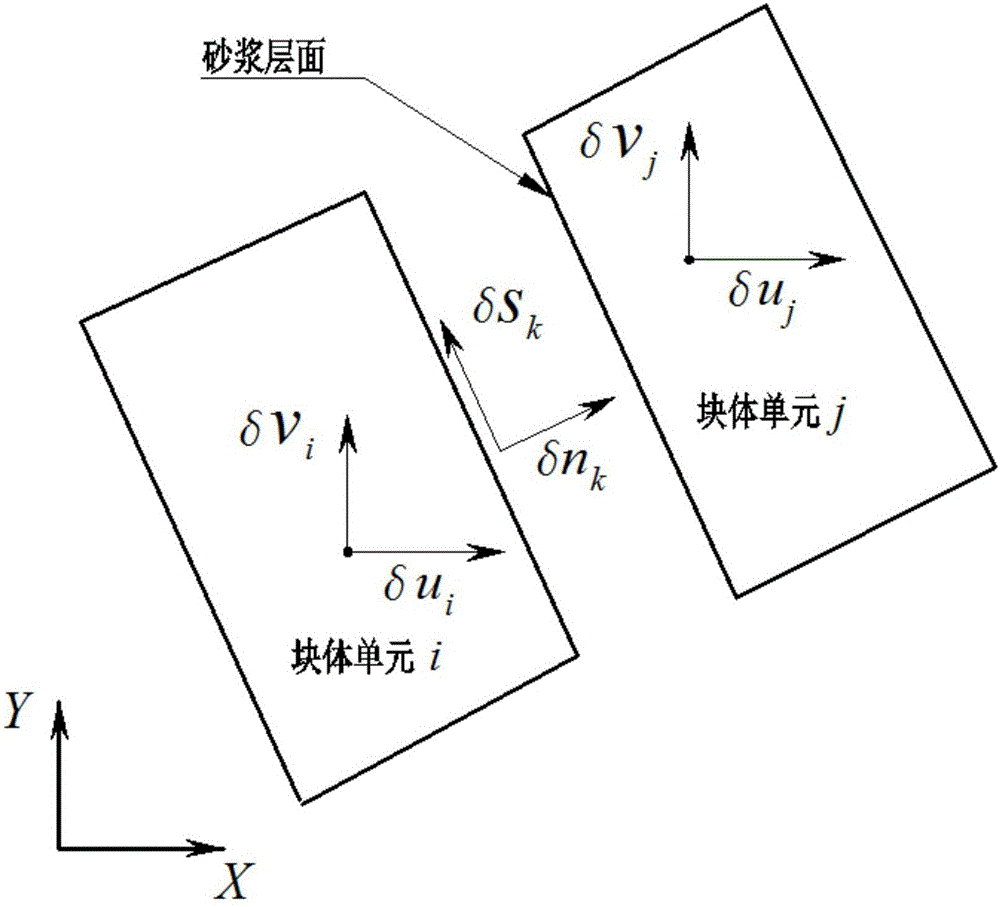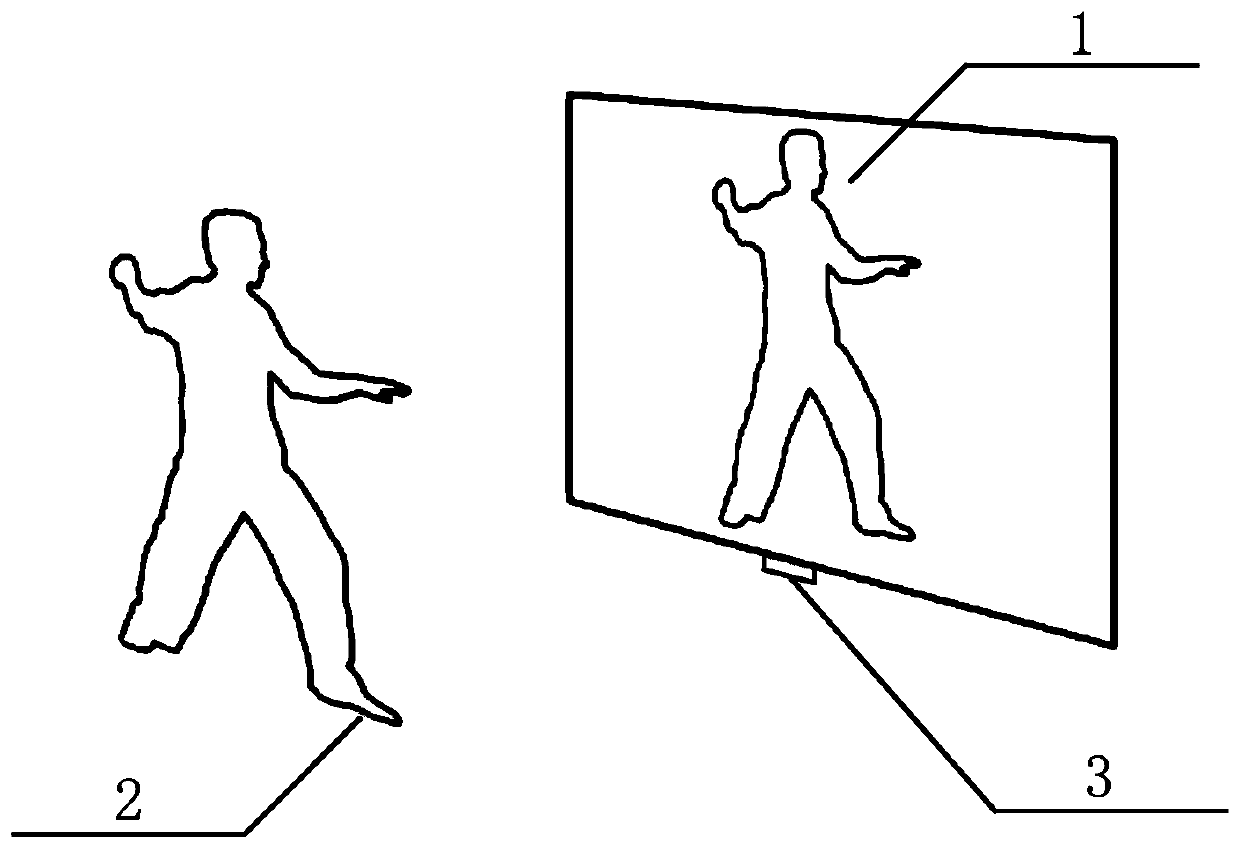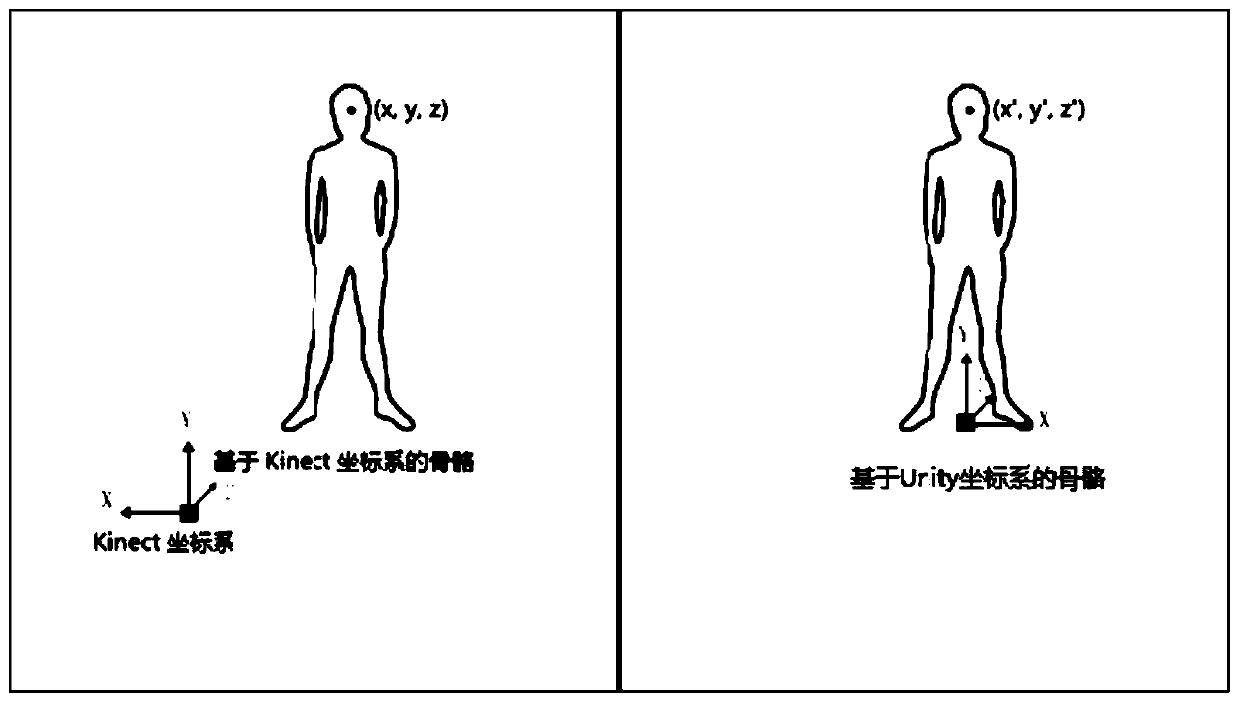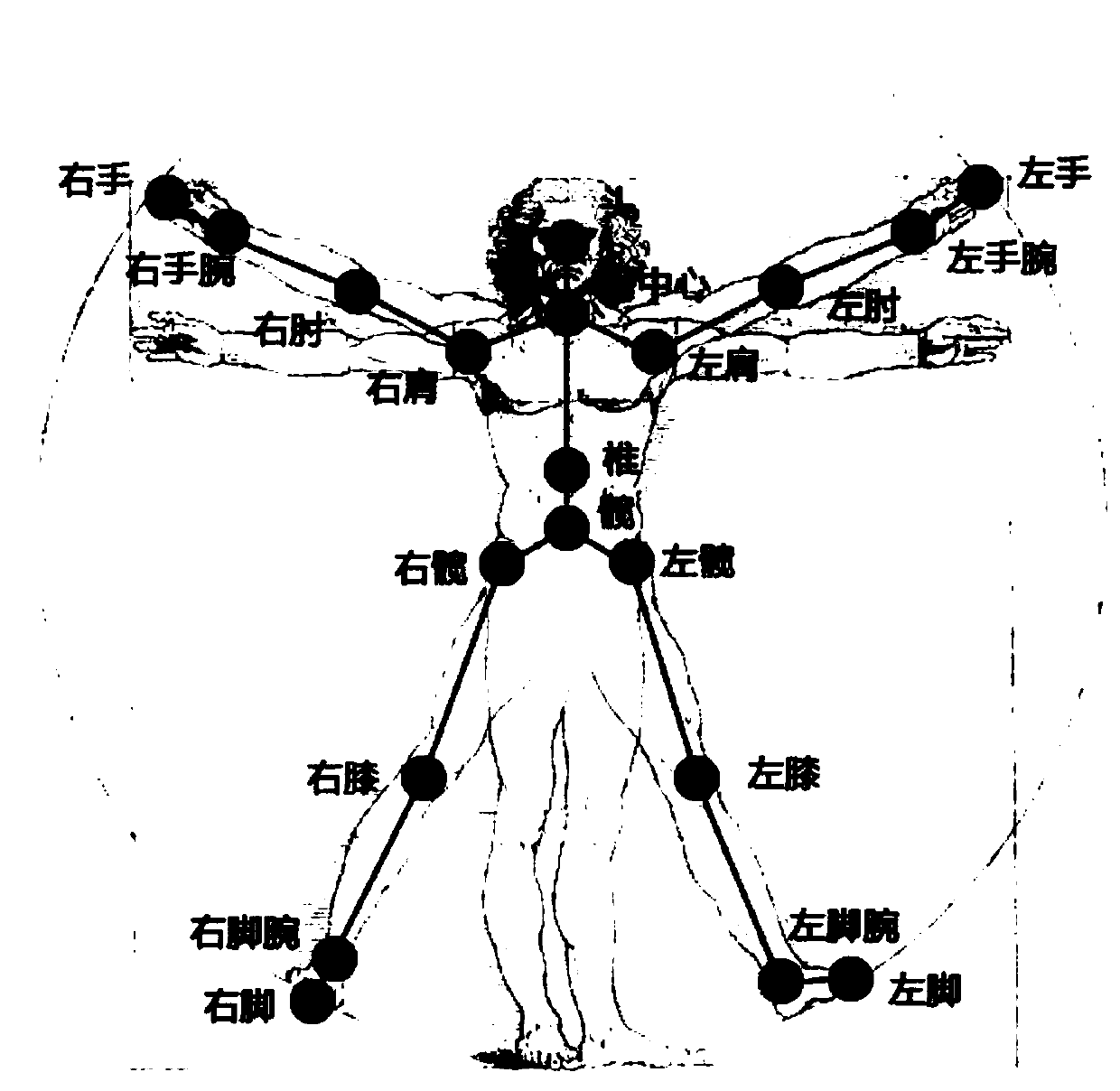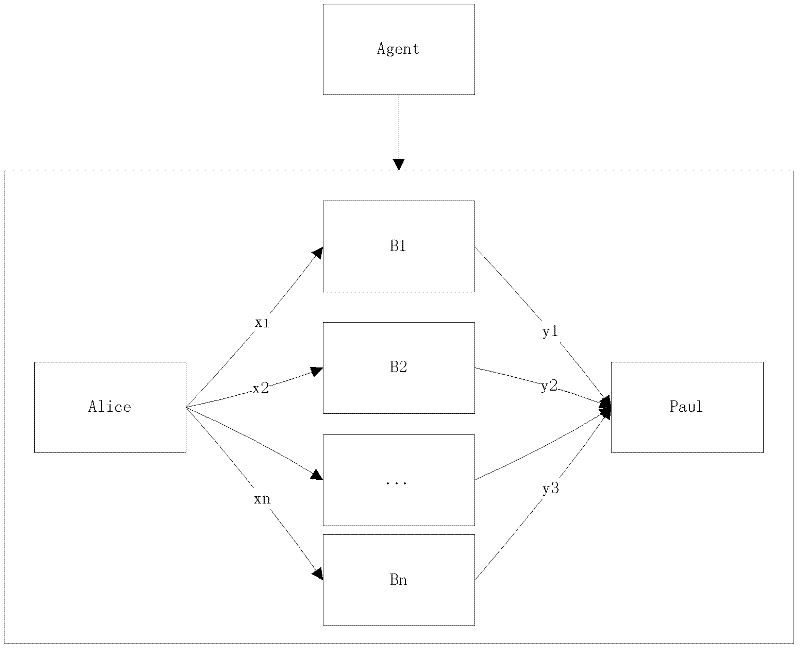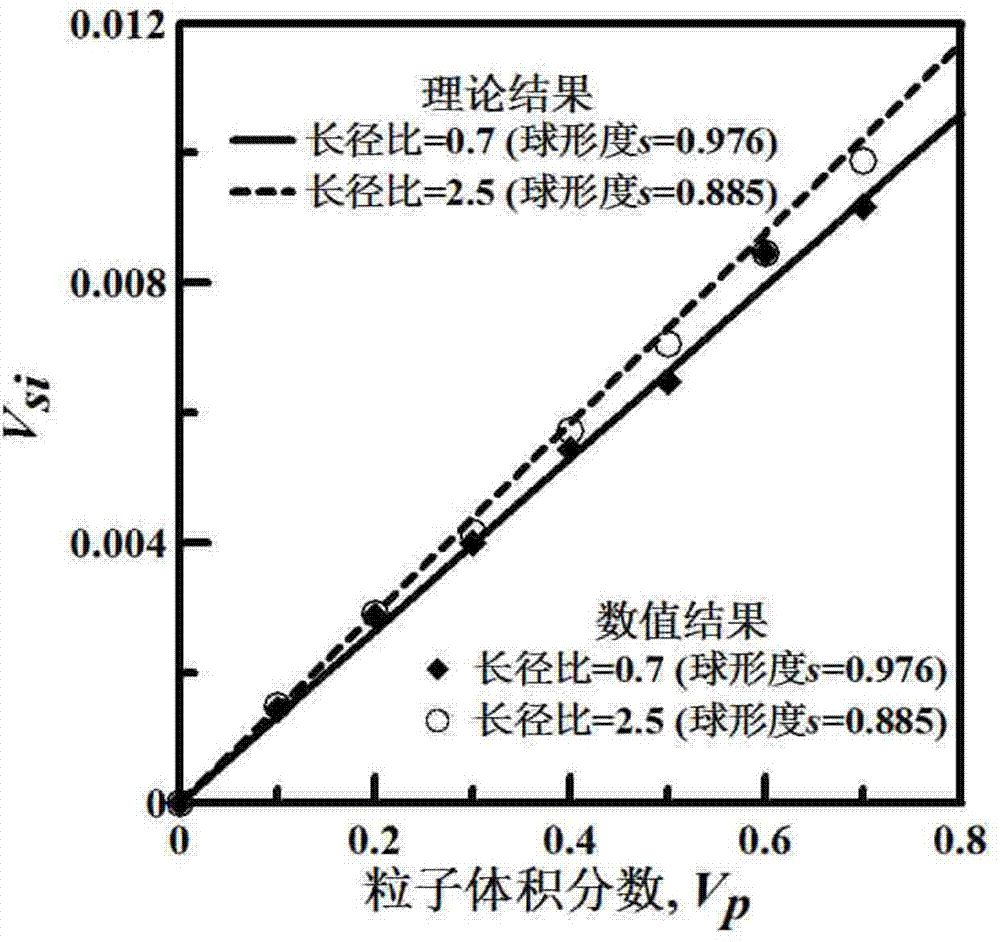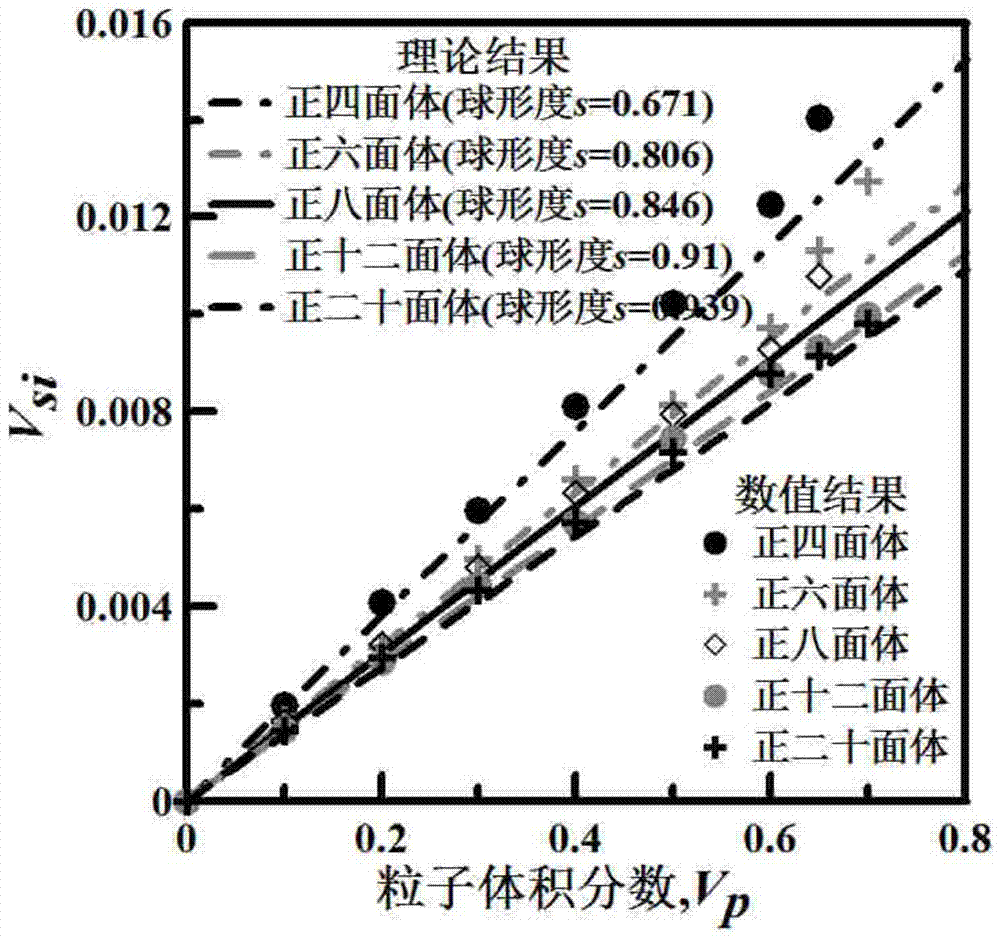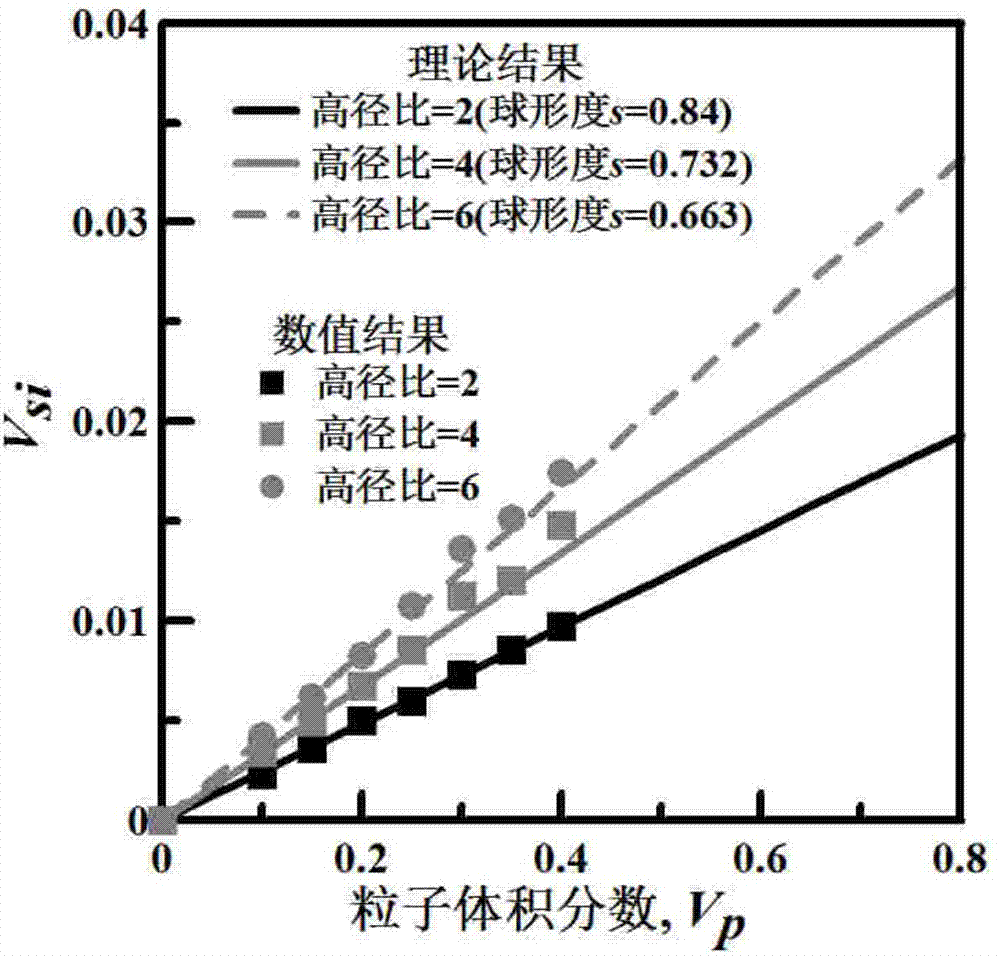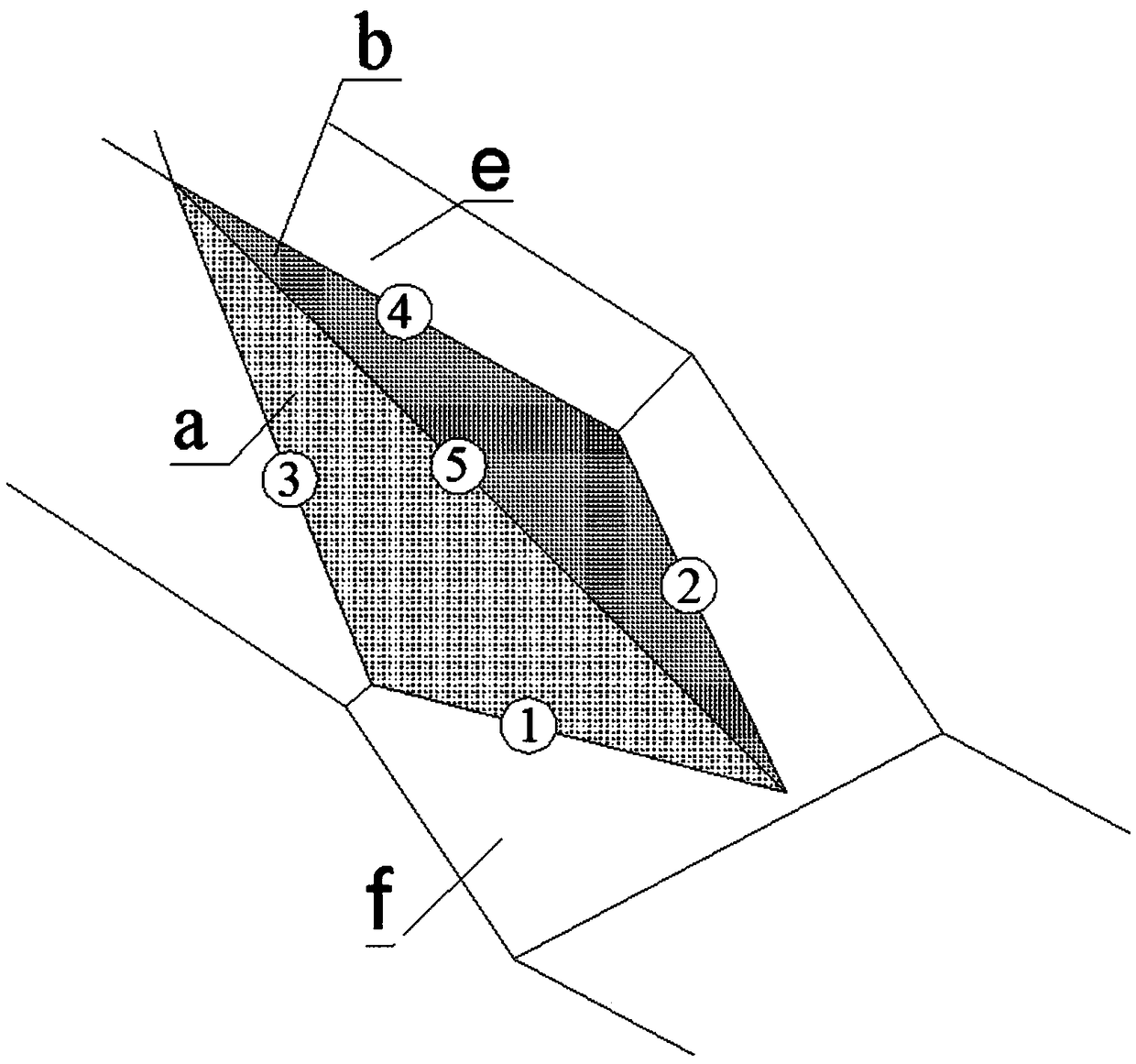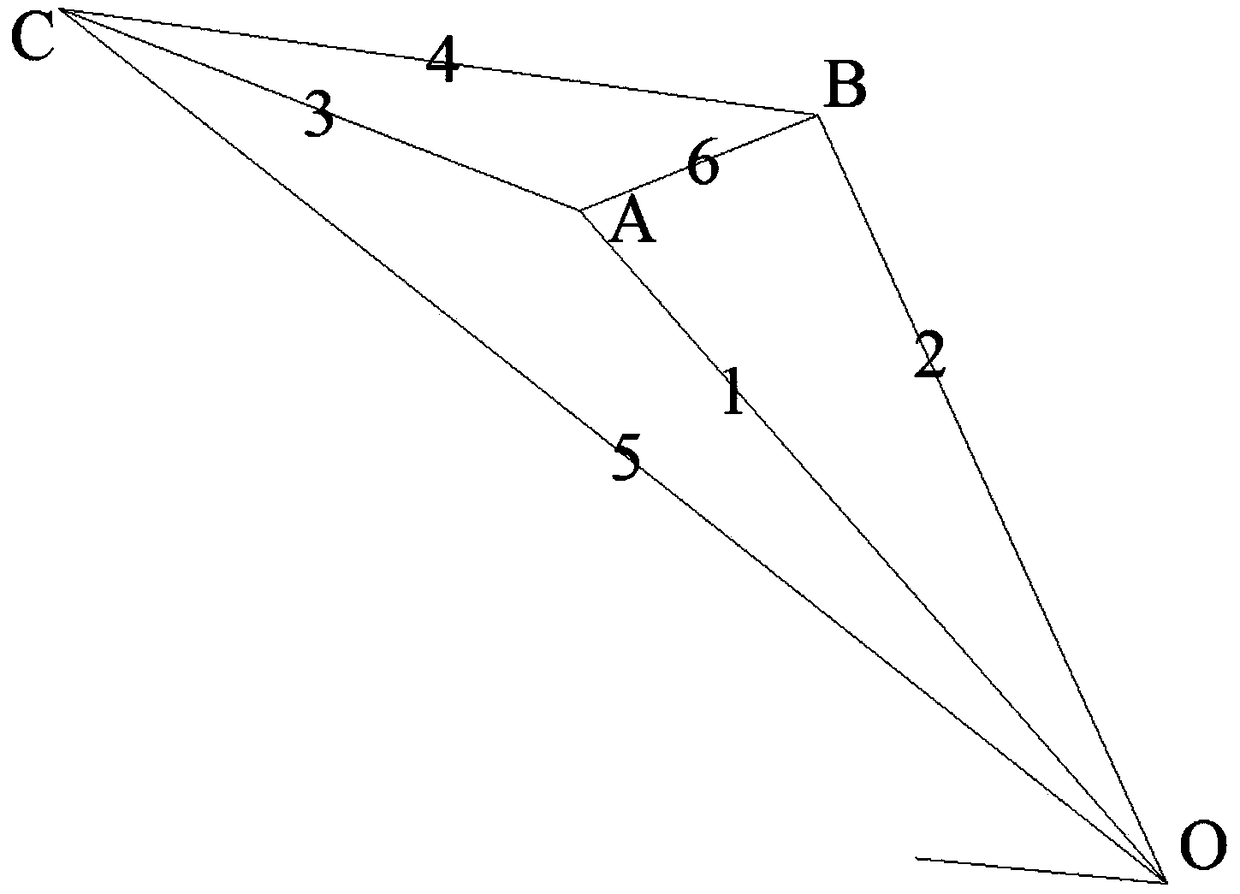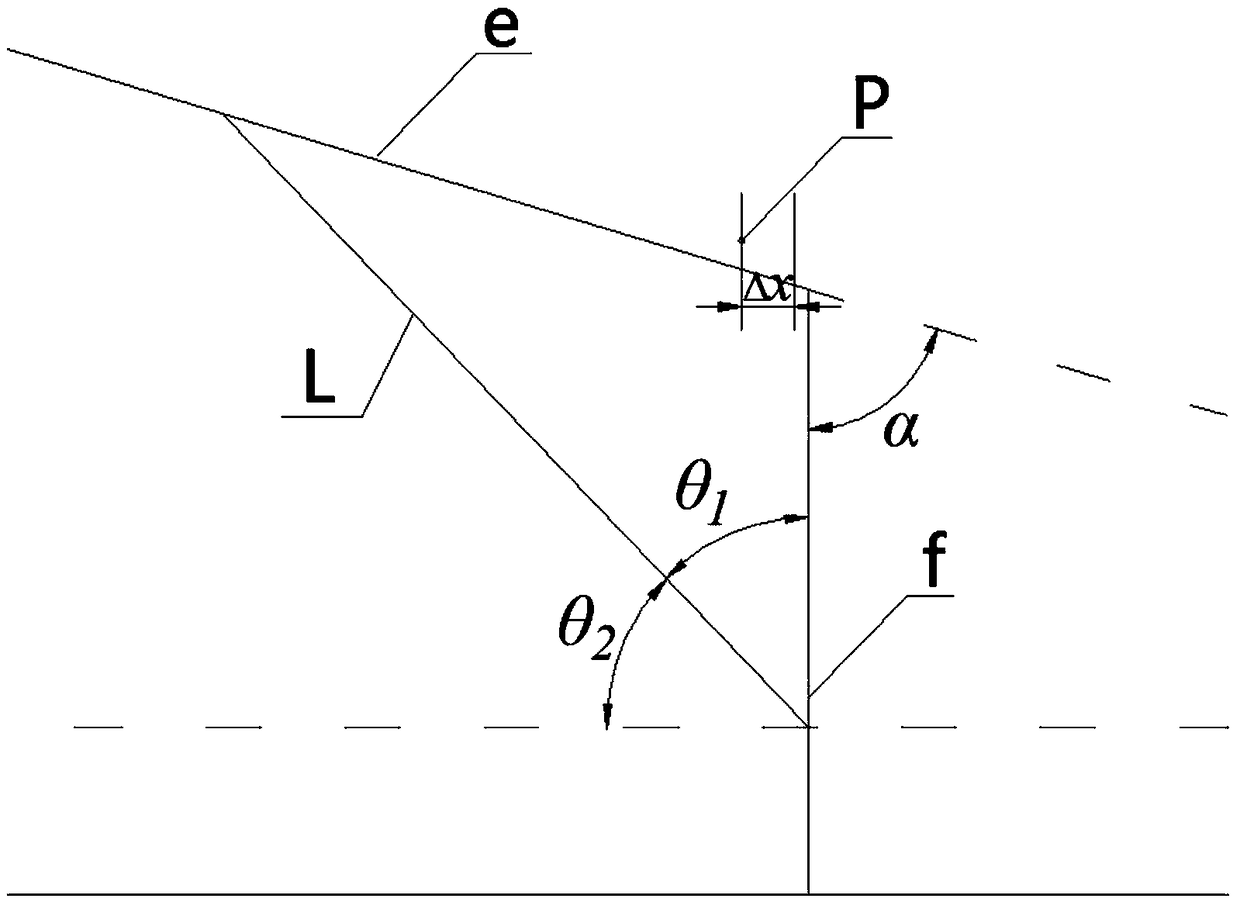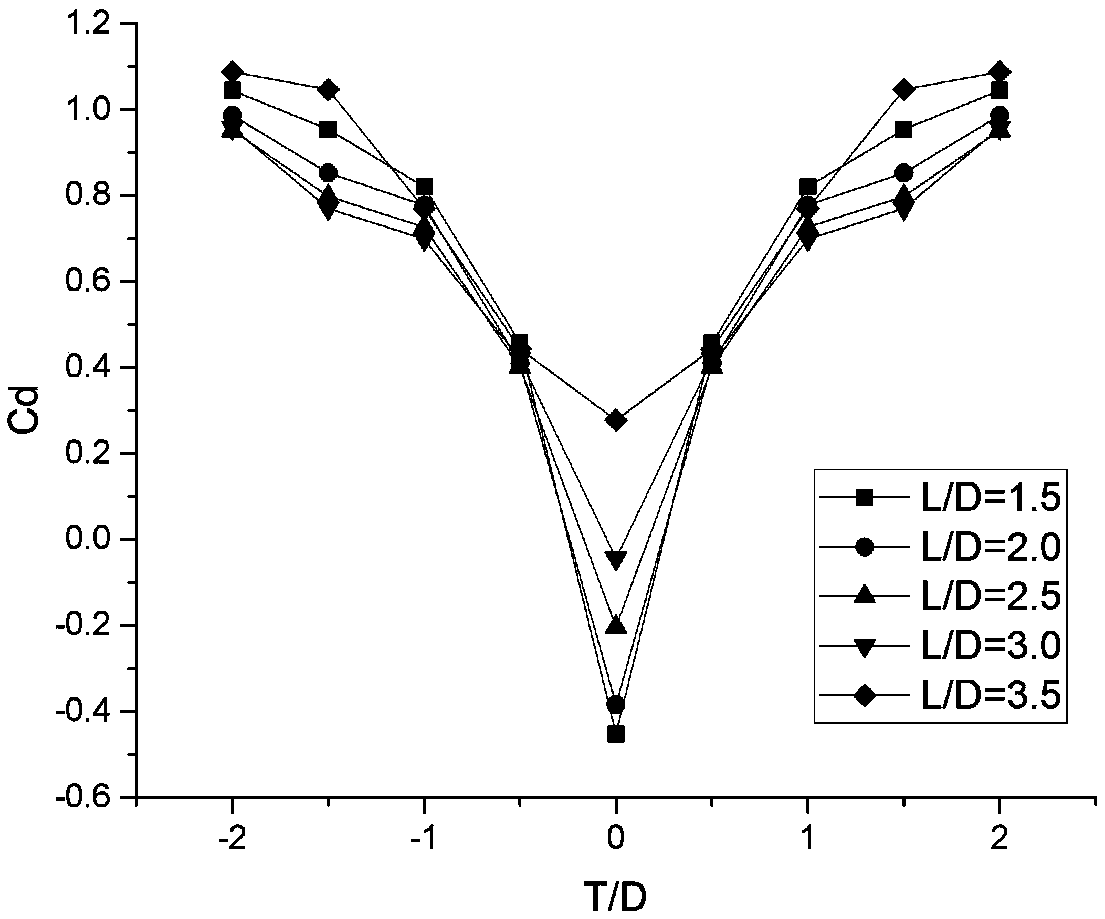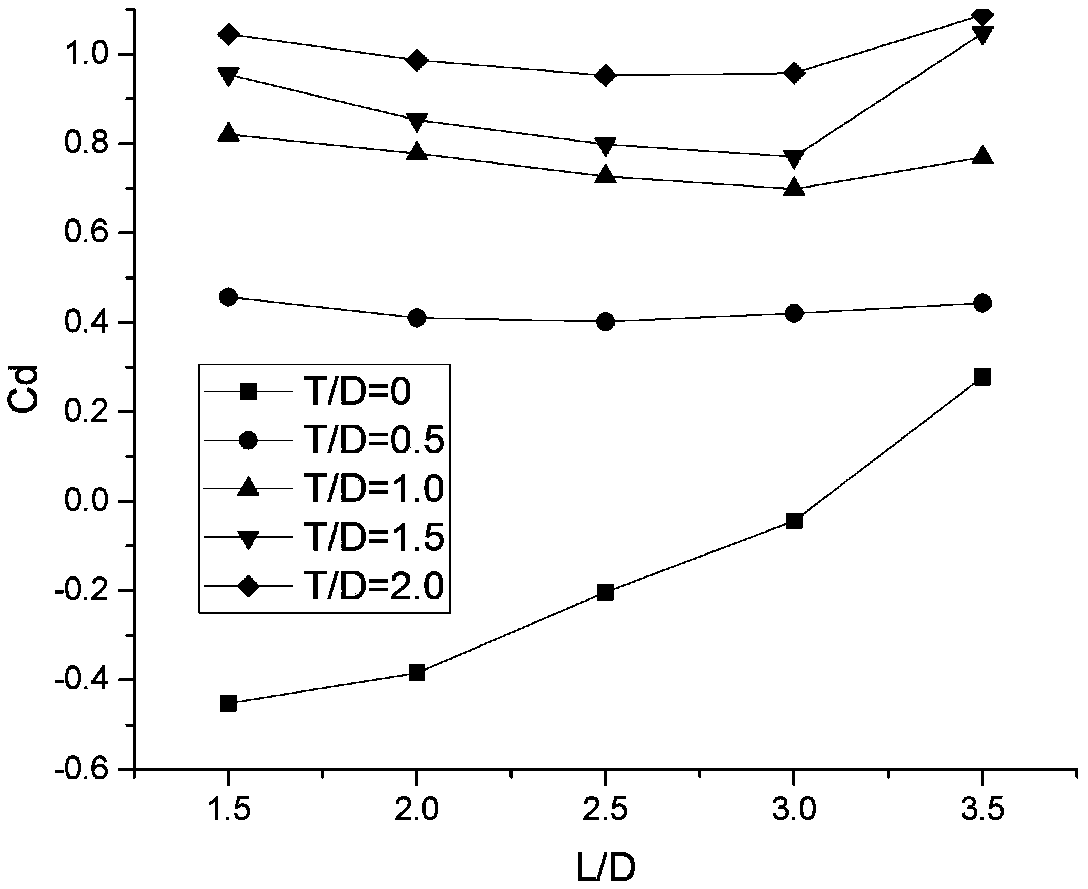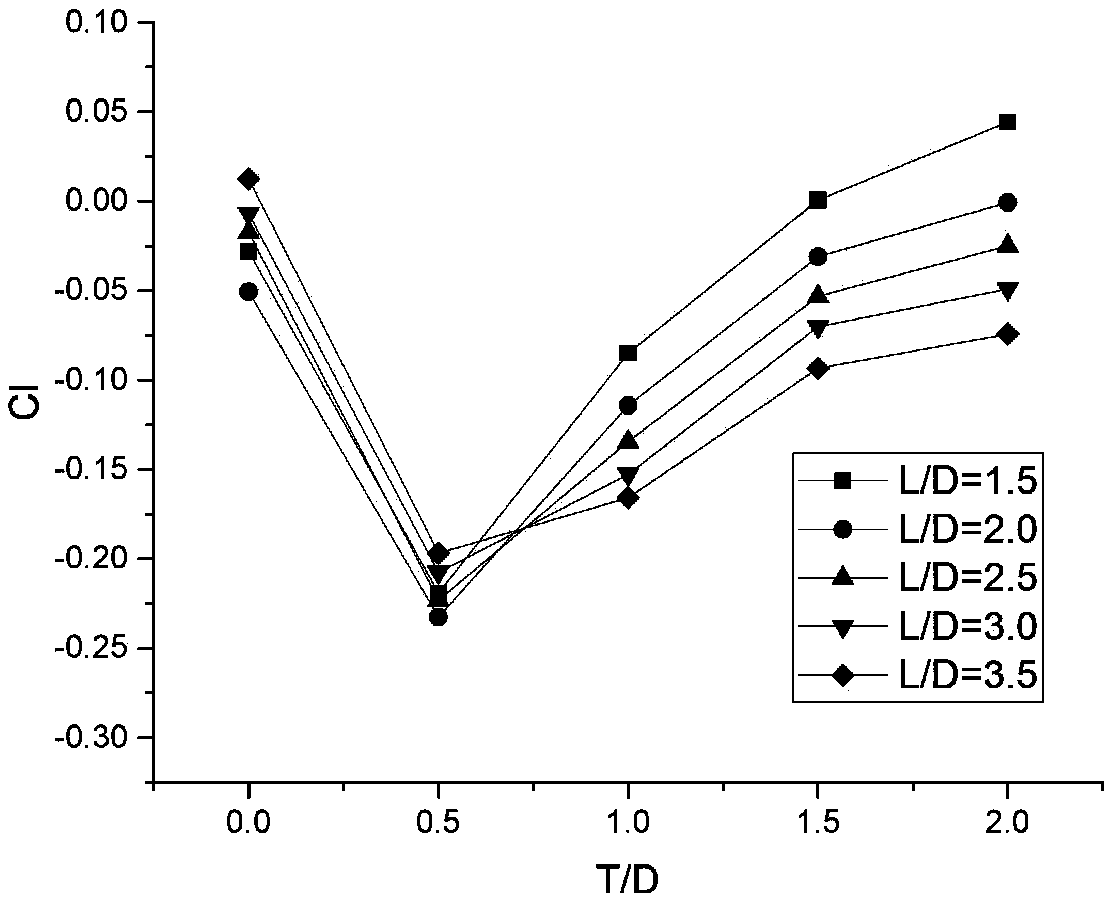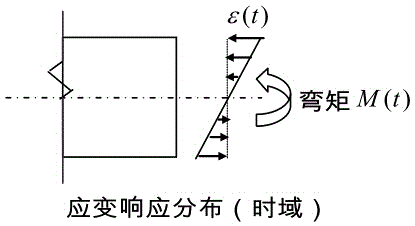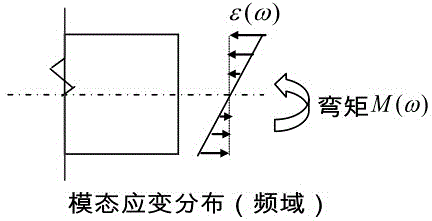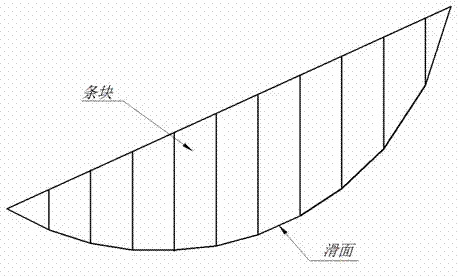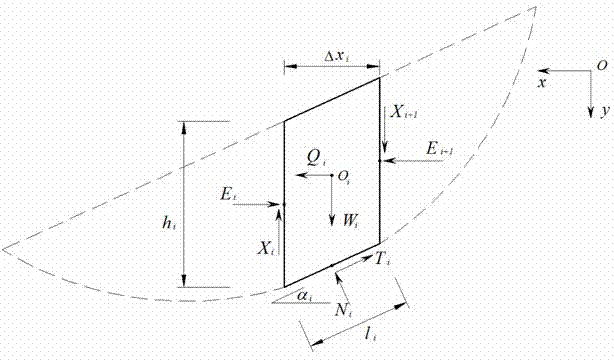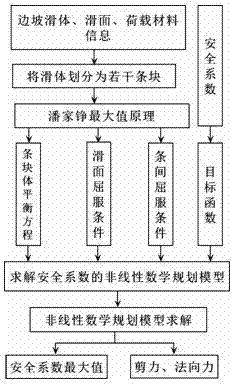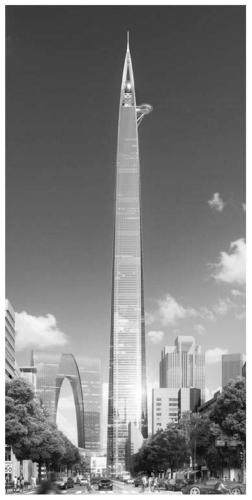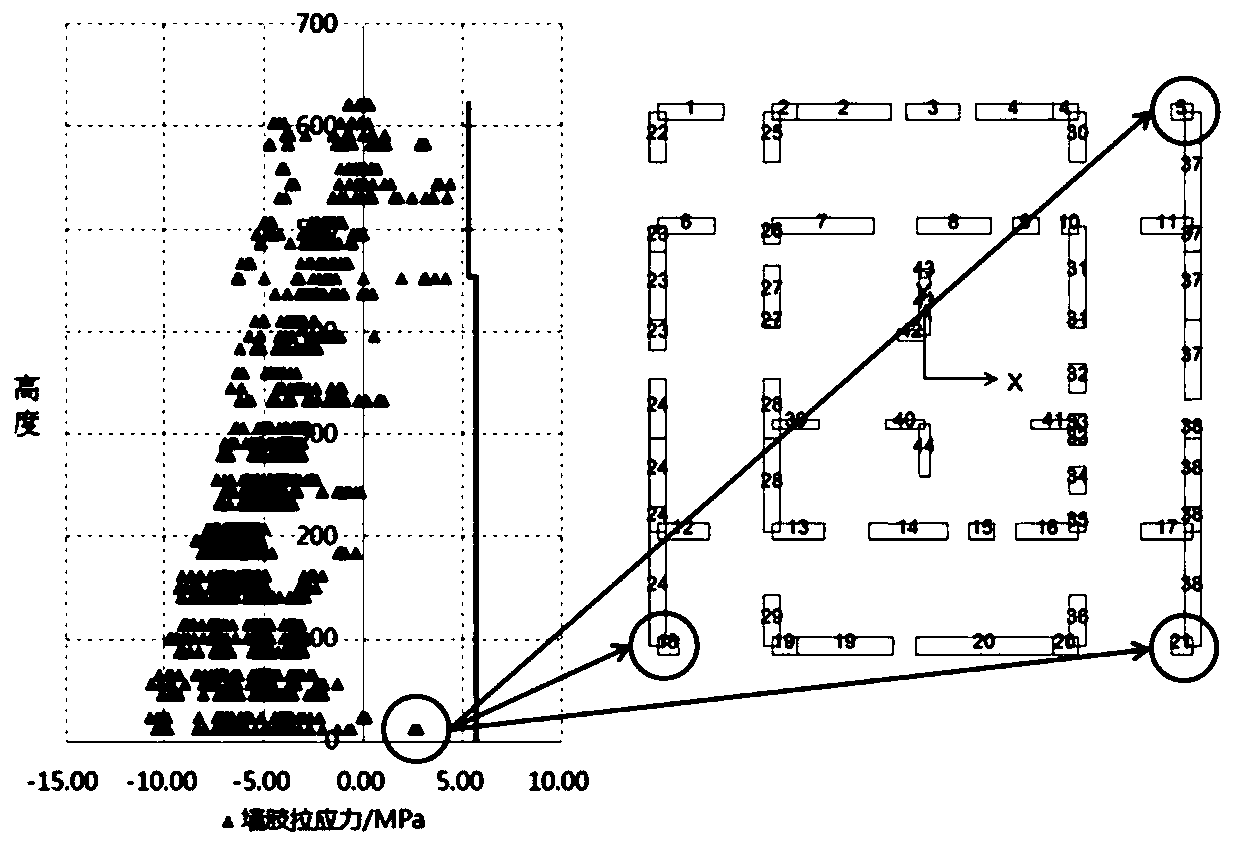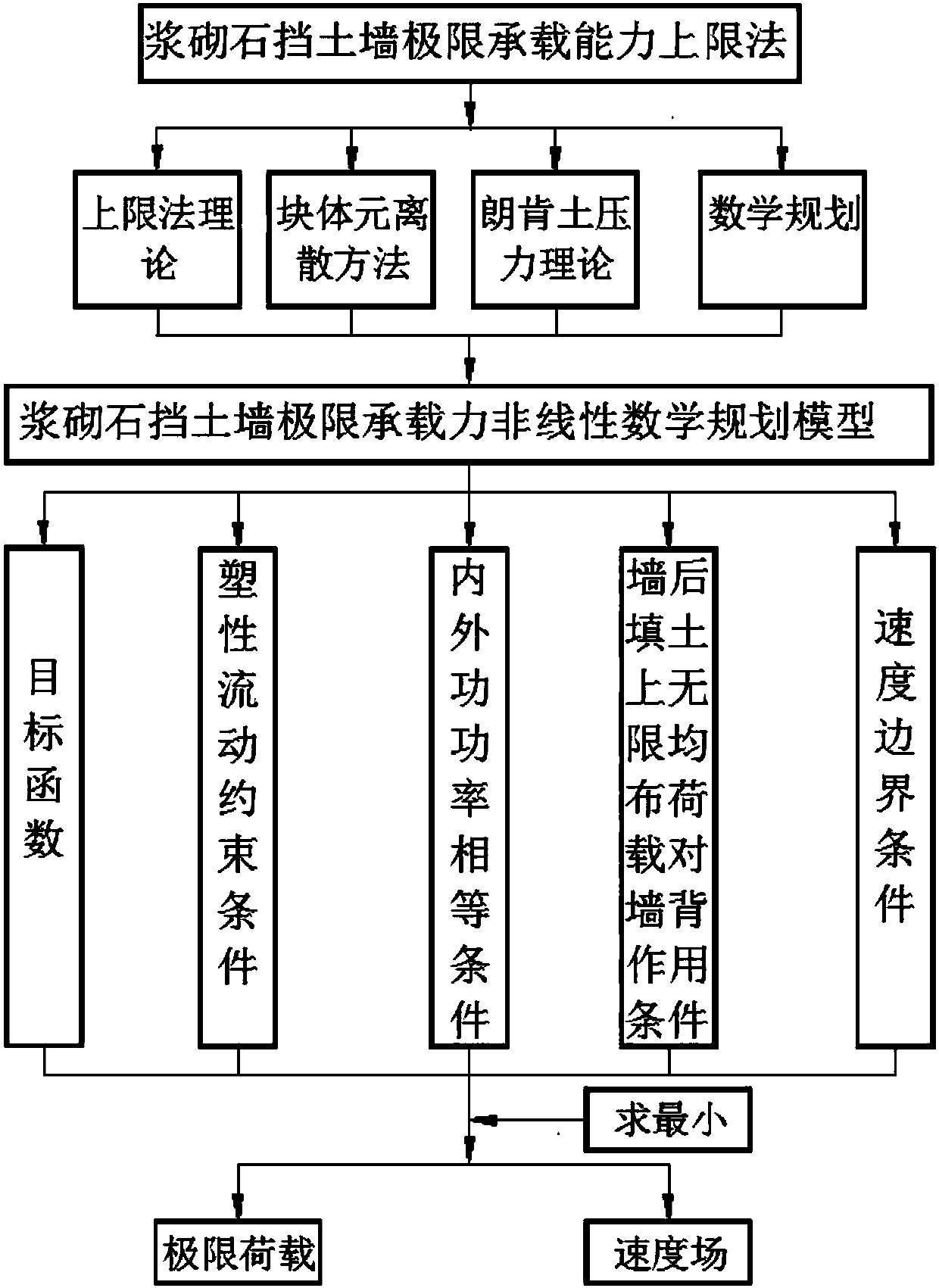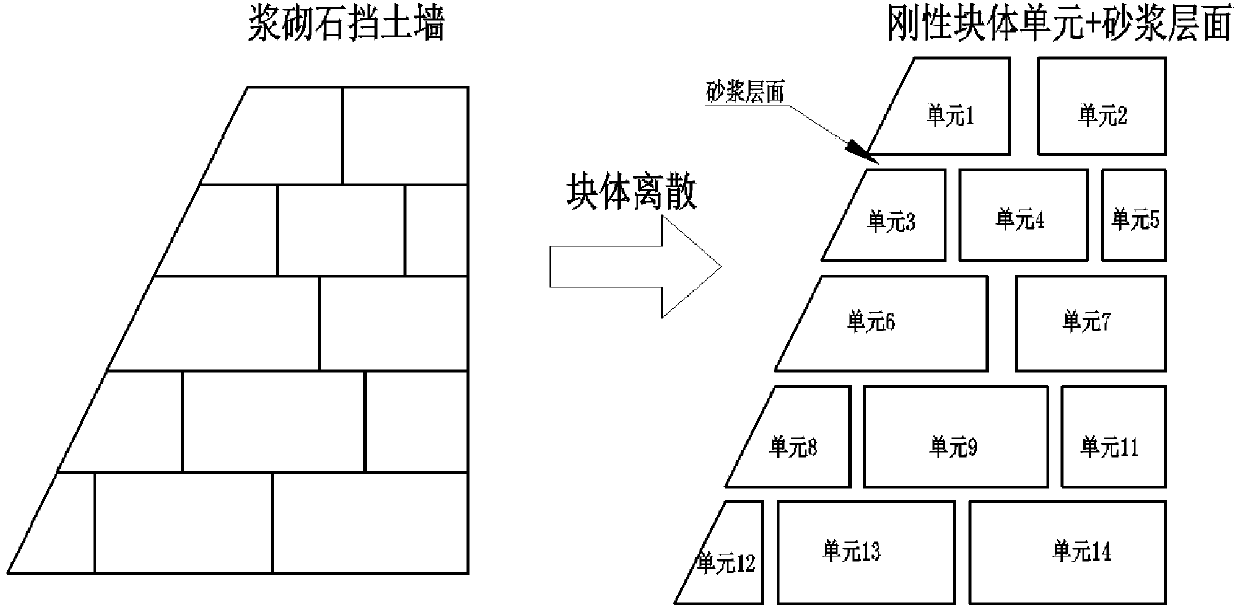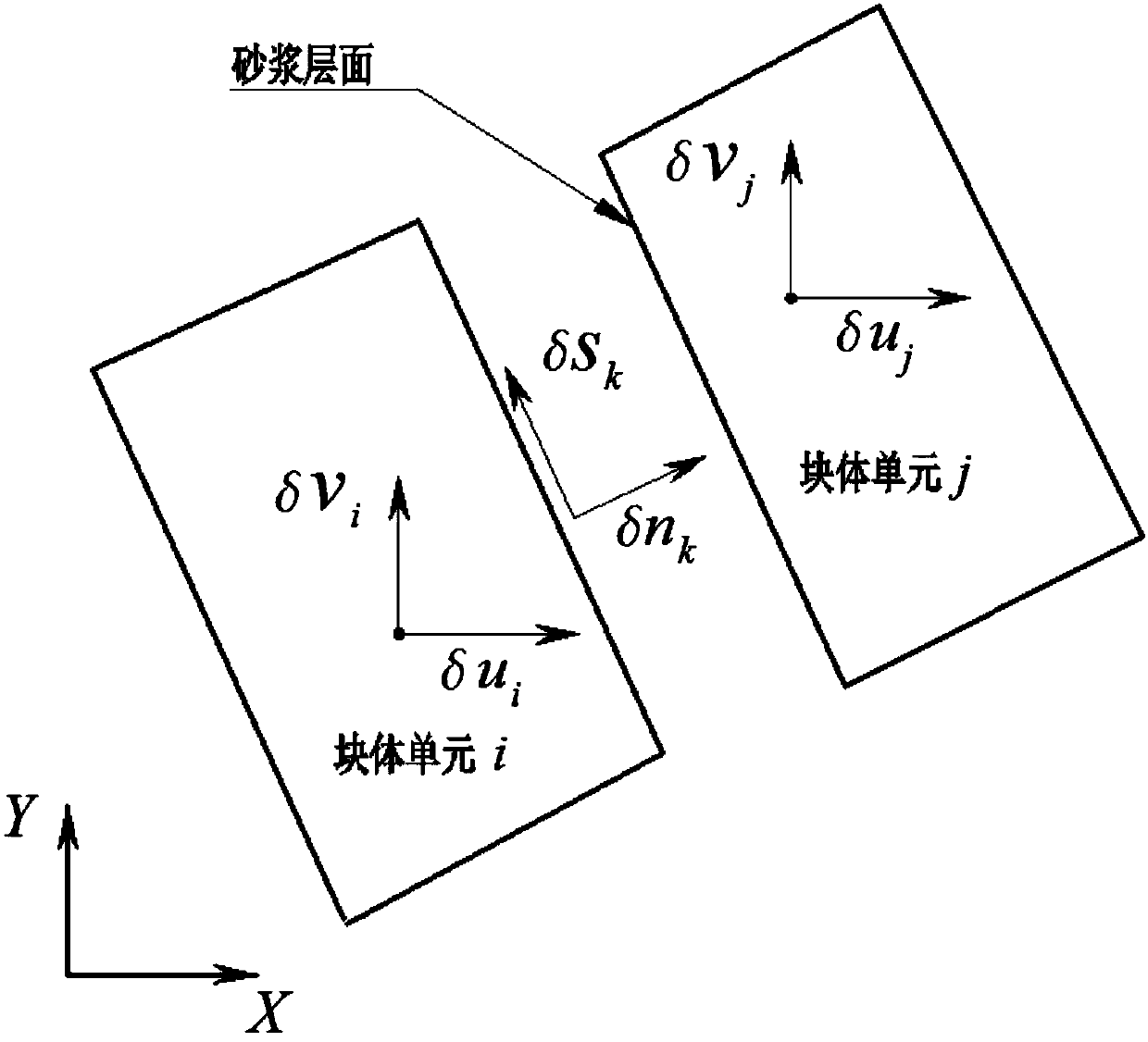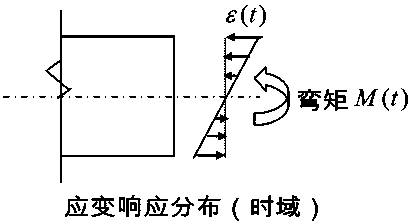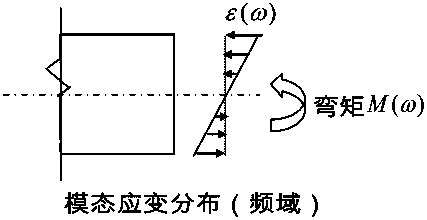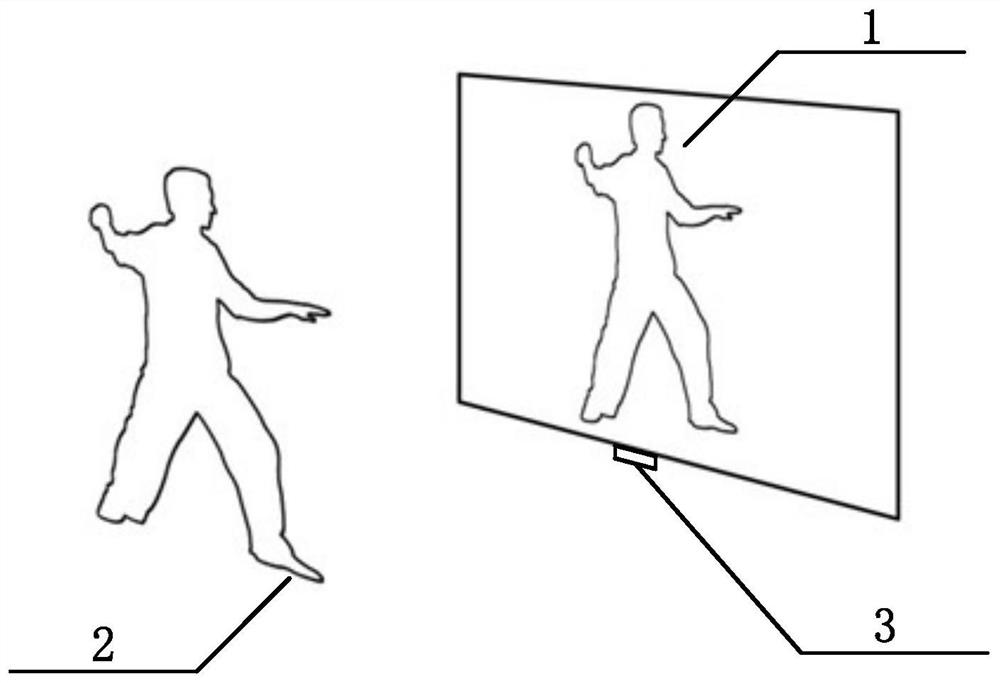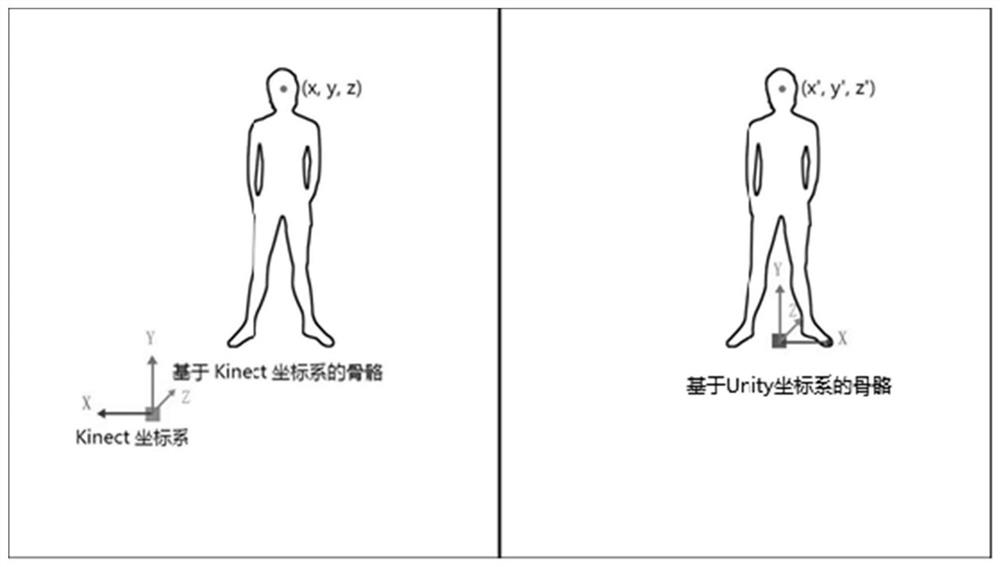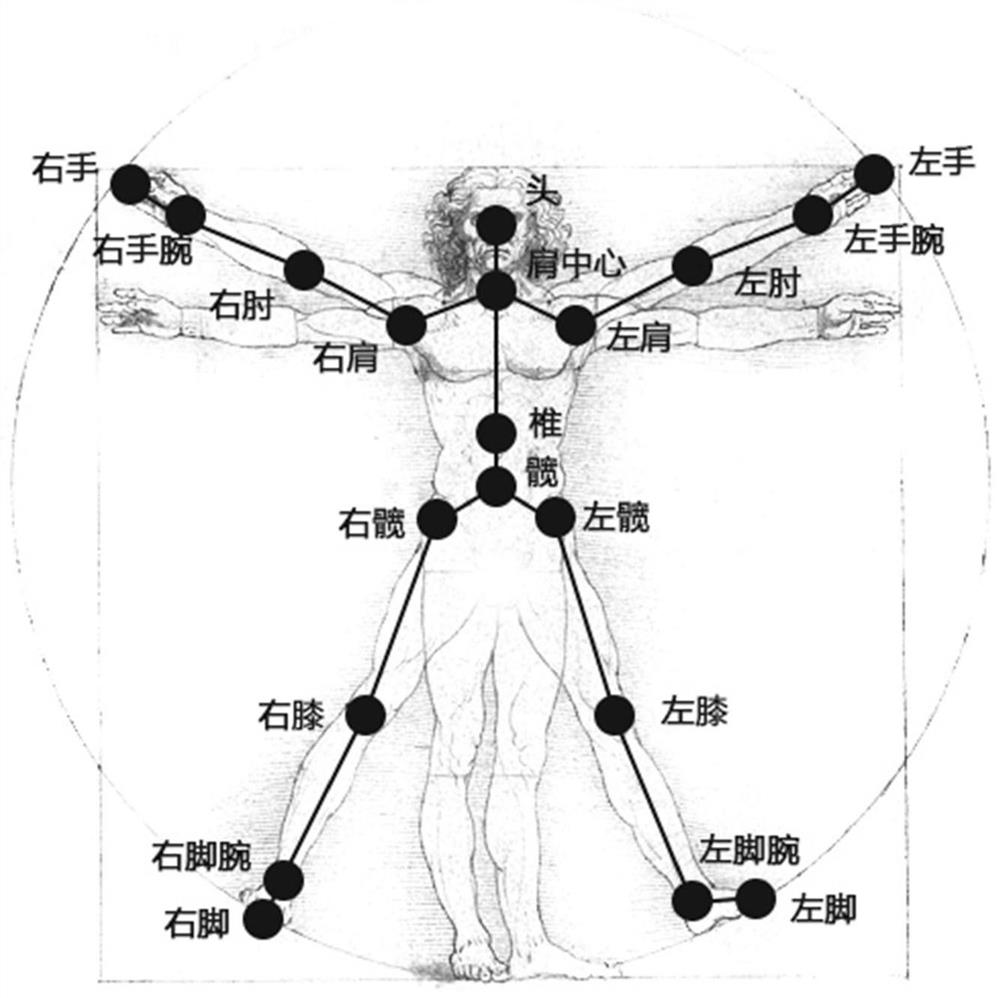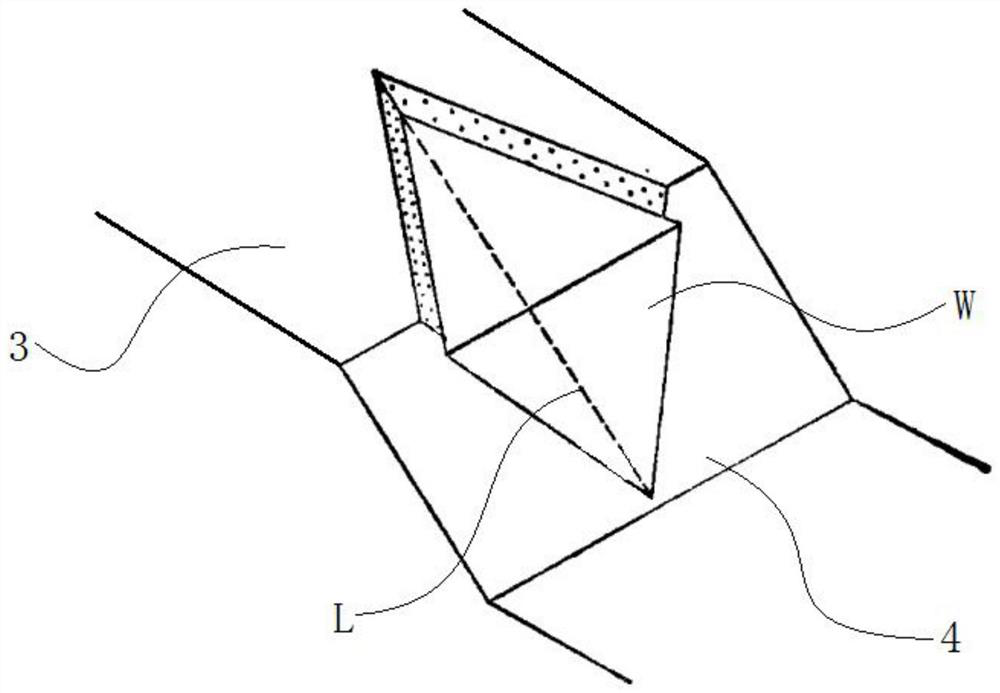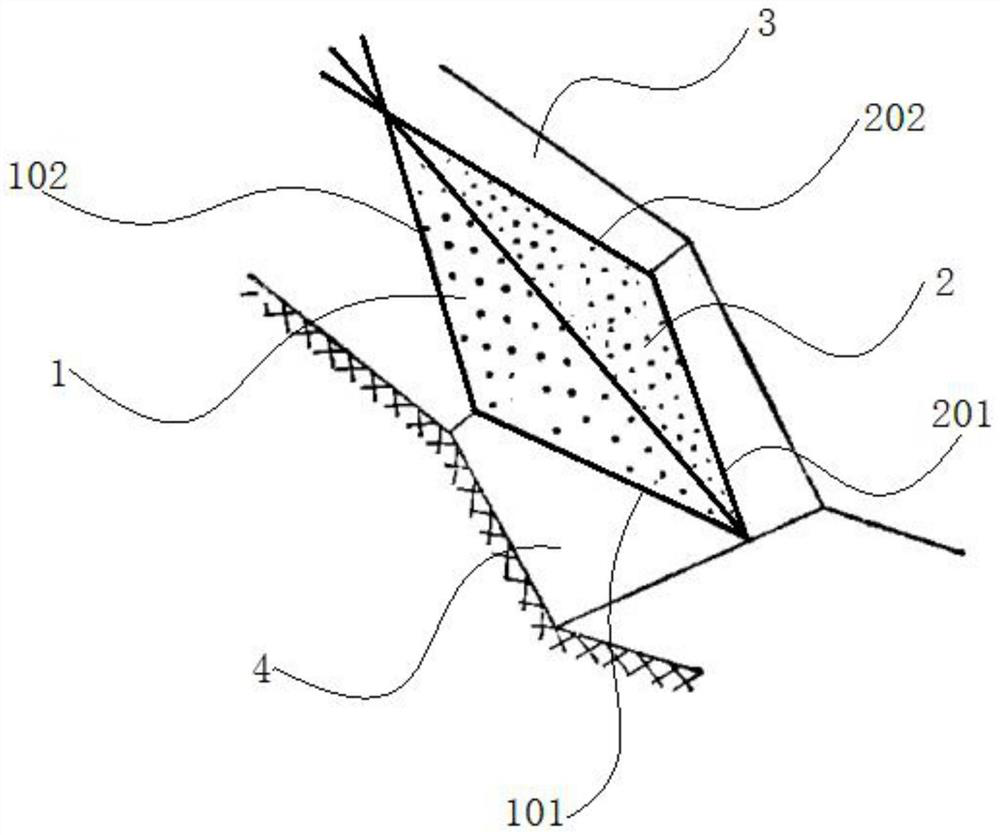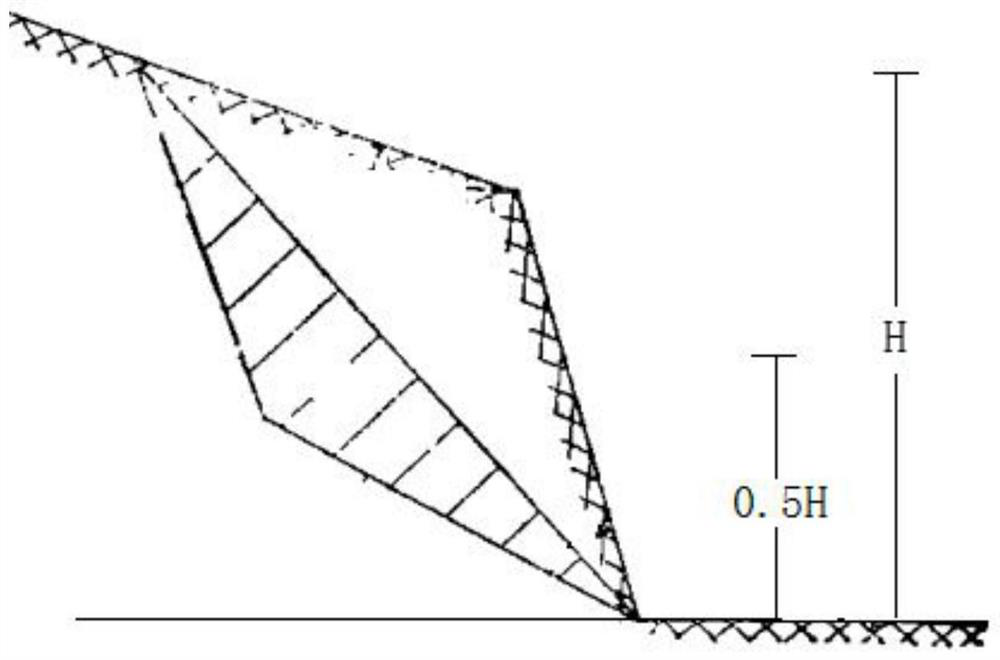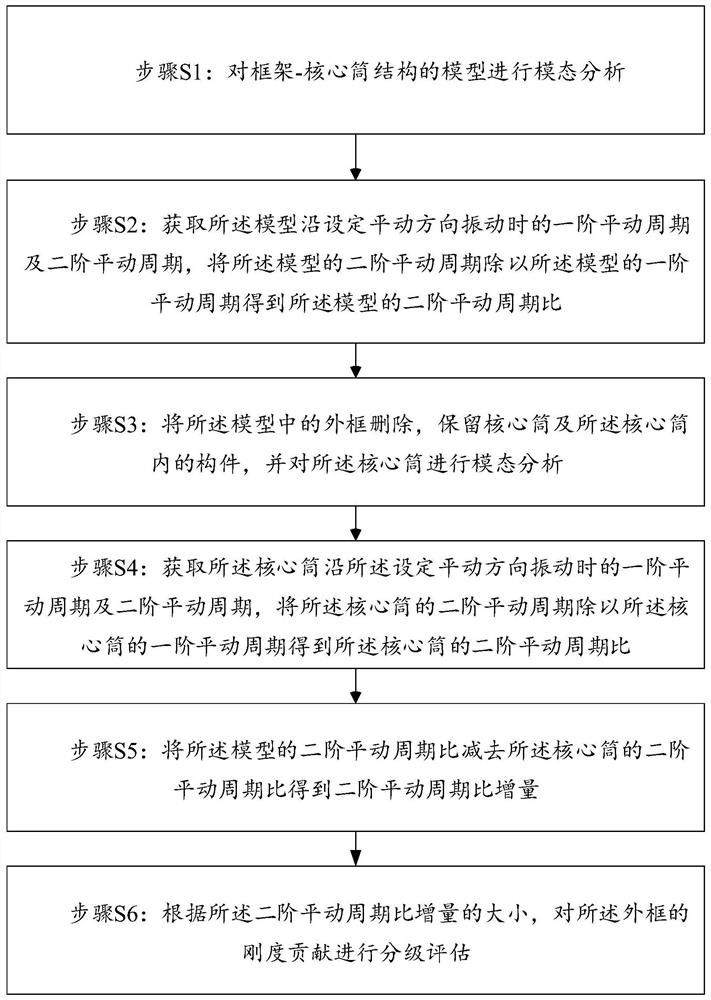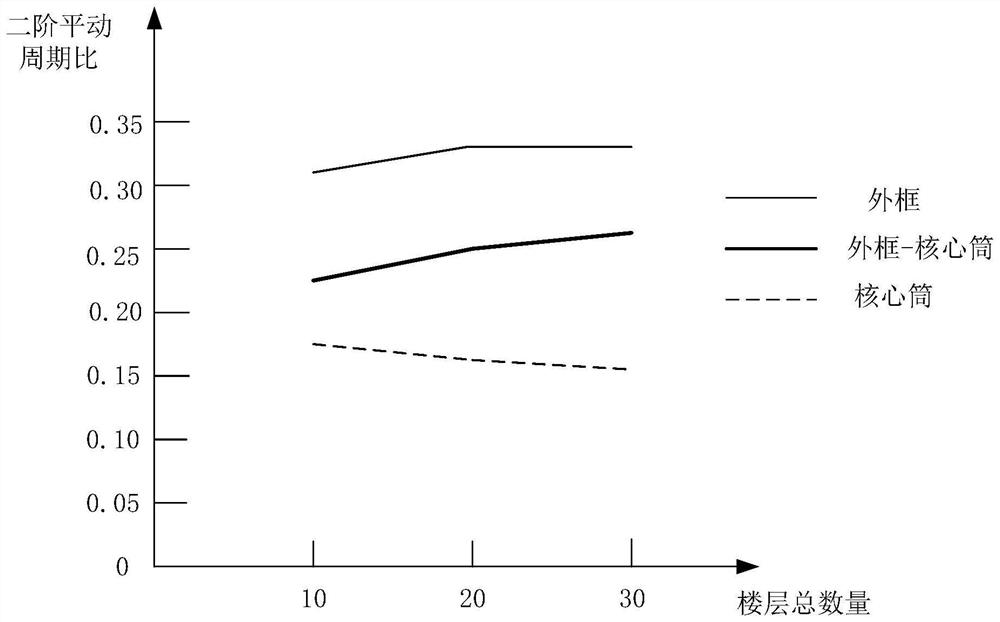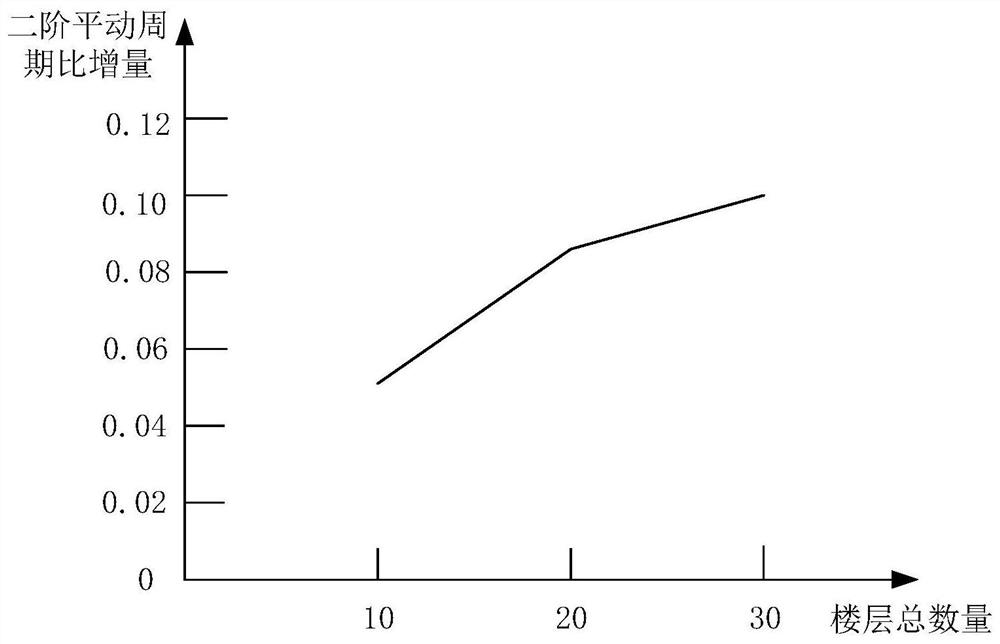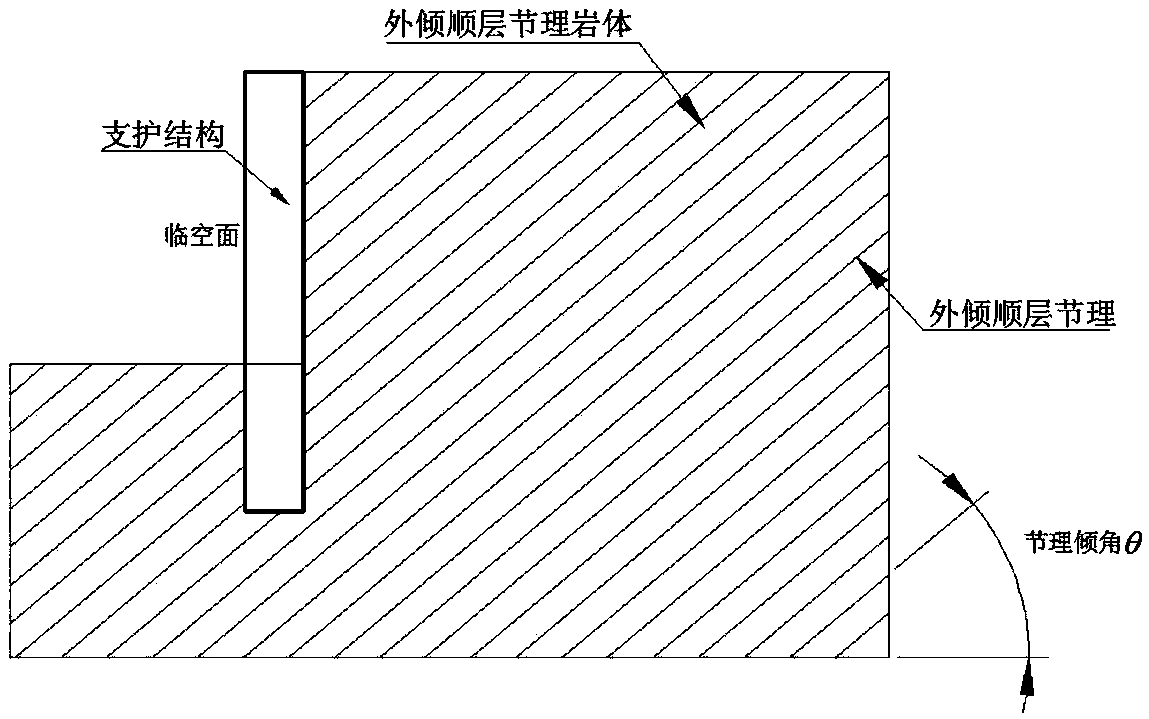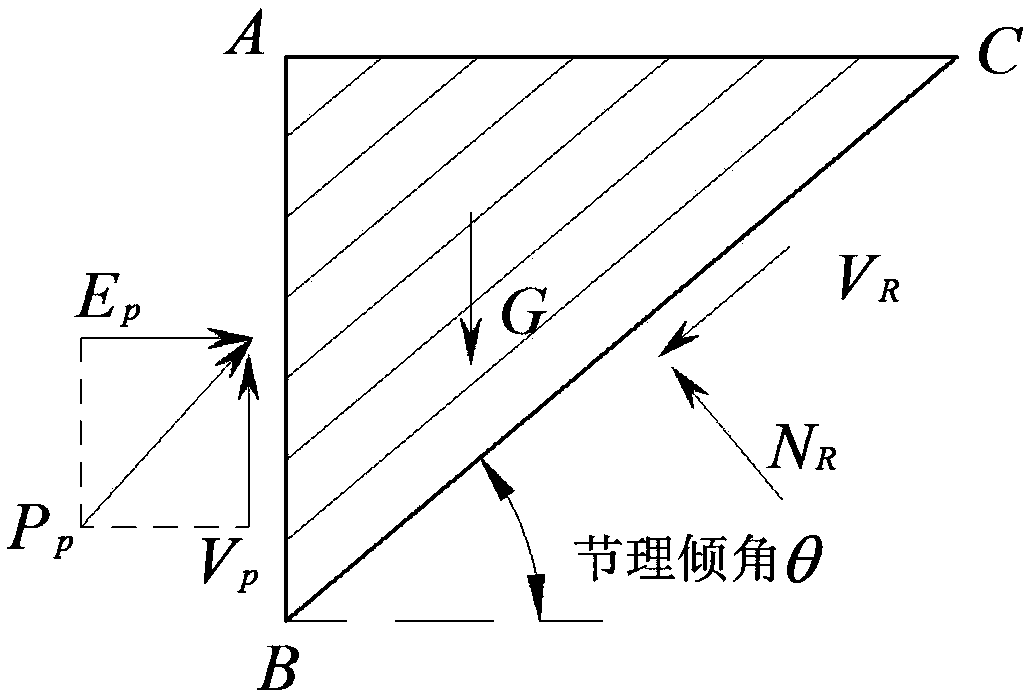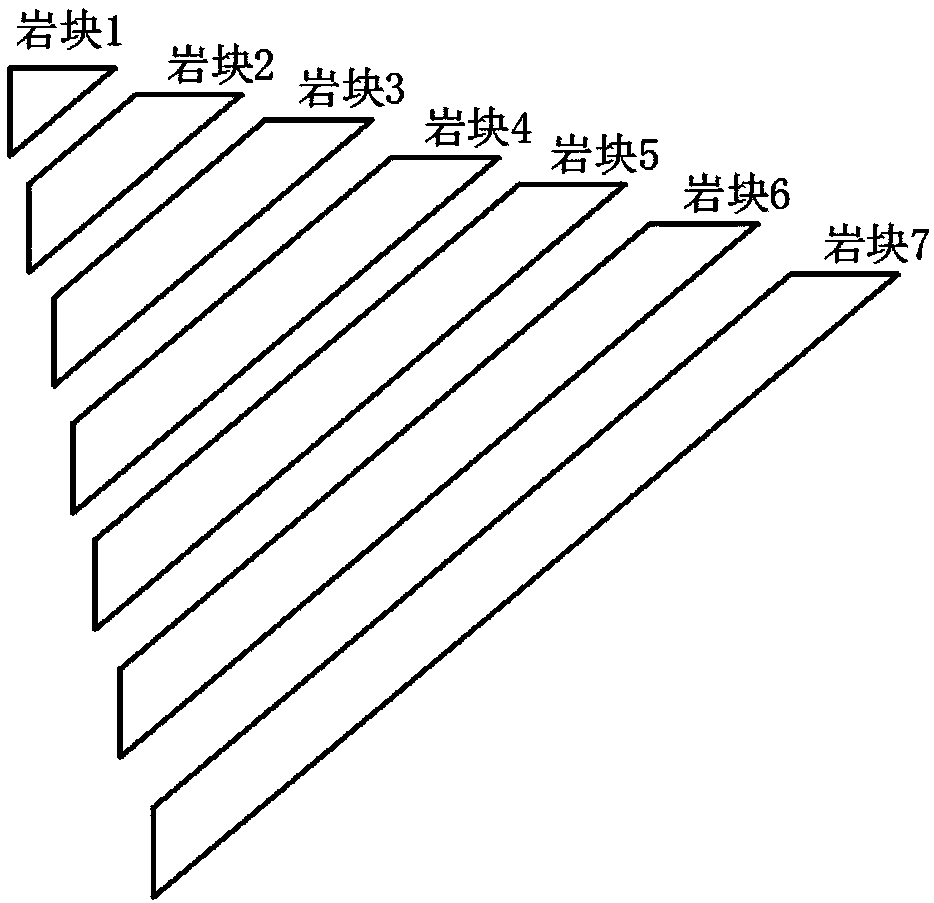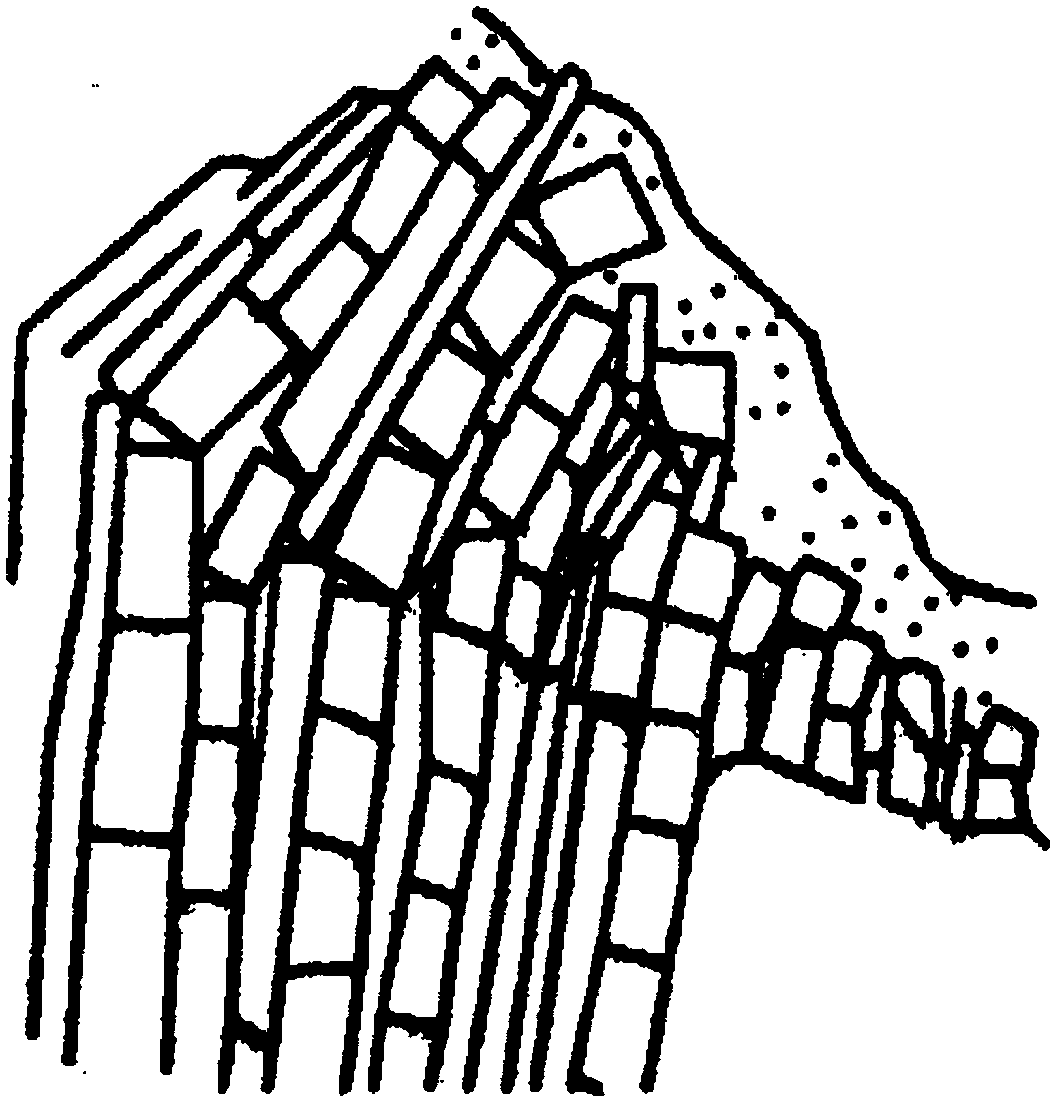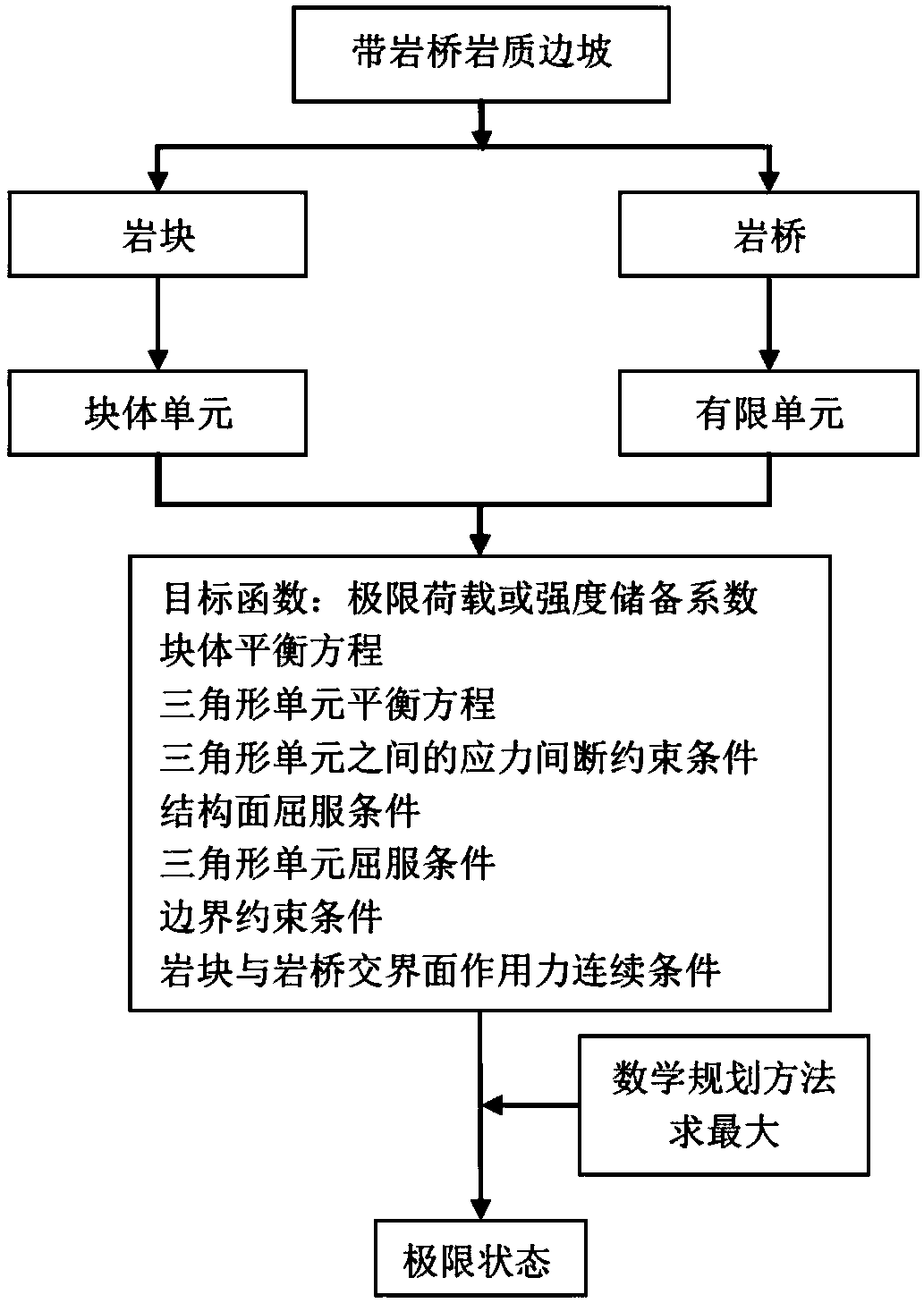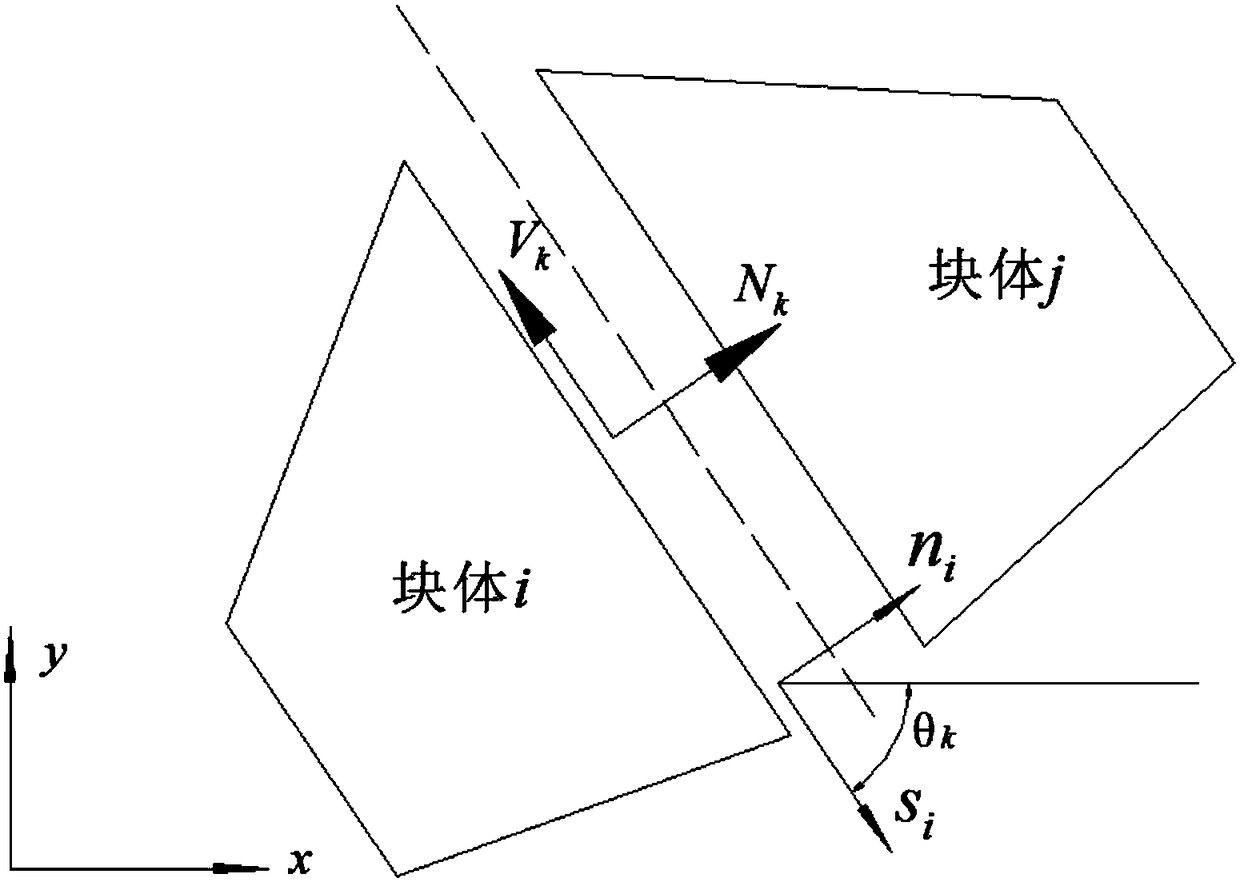Patents
Literature
30results about How to "Method concept is clear" patented technology
Efficacy Topic
Property
Owner
Technical Advancement
Application Domain
Technology Topic
Technology Field Word
Patent Country/Region
Patent Type
Patent Status
Application Year
Inventor
Lower-bound limit analysis method of ultimate bearing capacity of jointed rock slope considering rock translation and rotation effects at the same time
ActiveCN107330145AIntuitive form of destructionSimple optimization solutionClimate change adaptationDesign optimisation/simulationSlope stability analysisIterative method
The invention relates to a lower-bound limit analysis method of bearing capacity considering rock translation and rotation effects at the same time, and belongs to the technical field of rock slope stability analysis. According to the method, a rigid block unit is scattered as a geometry system of a rigid rock and a structural plane, the normal force, shearing force and bending moment of the structural plane are used as unknown quantities, a static permission stress field satisfying an equilibrium equation considering the translation and rotation effects of the rigid block unit, structural plane shear yield conditions, structural plane tensile yield conditions, structural plane rotational yield conditions and static boundary conditions is constructed, an overload coefficient is used as a target function, and a lower-bound linear mathematic programming model is built; the linear mathematic programming model is solved by means of an interior point algorithm, a strength reserve coefficient is solved by means of an iterative method at the same time, and the lower-bound solution and corresponding yield area of the overload coefficient or the strength reserve coefficient of the jointed rock slope are acquired. The method has the advantages that the concept is clear and the computational accuracy is high, and the method can be applicable to bearing capacity analysis of translational or rotational failure of the jointed rock slope.
Owner:KUNMING UNIV OF SCI & TECH
Plastic ultimate analysis lower limit method for ultimate bearing capacities of rock slopes with rock bridges
ActiveCN106126796AMethod concept is clearImprove calculation accuracyClimate change adaptationDesign optimisation/simulationLower limitSlope stability analysis
The invention relates to a calculation method for ultimate bearing capacities of rock slopes with rock bridges, and belongs to the field of rock slope stability analysis. The method comprises the following steps of: dispersing a rock slope with rock bridges by adoption of a composite element method on the basis of a theory of the plastic ultimate analysis lower limit method; establishing a nonlinear mathematic programming model for stability analysis of rock slopes with rock bridges by taking an ultimate load and a strength reserve coefficient of the rock slope as target functions; and solving maximum values of the ultimate load and the strength reserve coefficient by using a mathematic programming optimization algorithm. According to the method provided by the invention, the plastic ultimate analysis lower limit method, a composite element method dispersion technology and a mathematic programming measure are combined to establish a rock slope ultimate bearing capacity solution method which not only can simulate the continuous media characteristics of the rock bridges, but also can simulate the non-continuous media characteristics of rock blocks. The method provided by the invention has the characteristics of being clear in concept and high in calculation precision, and can be applied to the analysis of bearing capacities of the rock bridges in rock slopes.
Owner:KUNMING UNIV OF SCI & TECH
Upper-bound limit analysis method of ultimate bearing capacity of jointed rock slope considering translation and rotation effects at the same time
ActiveCN107330146AMethod concept is clearImprove calculation accuracyDesign optimisation/simulationSpecial data processing applicationsVirtual workSimplex algorithm
The invention relates to an upper-bound limit analysis method of ultimate bearing capacity of rock slope considering rock translation and rotation effects at the same time, and belongs to the technical field of rock slope bearing capacity analysis. According to the method, based on a plastic upper-bound limit analysis theory, by means of multiple freedom degree rigid block unit discrete jointed rock slope, the translational speed and rotational speed of the rigid block unit centroid are used as unknown quantities, the translation and rotation mechanical effects of rocks are considered at the same time, the overload coefficient of the slope is used as a target function, and plastic flowing conditions satisfying shear failure, tensile failure and rotational failure of a structural plane are constructed; then combined with a virtual work principle and speed boundary conditions, a linear mathematic programming model for working out the ultimate bearing capacity of the jointed rock slope is built, the linear mathematic programming model is solved by means of a simplex method, a strength reserve coefficient is solved by means of an iterative method at the same time, and finally the upper-bound solution and corresponding failure mechanism of the ultimate bearing capacity of the jointed rock slope are acquired. The method has the advantages that the concept is clear and the computational accuracy is high.
Owner:KUNMING UNIV OF SCI & TECH
Hybrid numerical discretization-based plasticity limit analysis upper-bound method of non-across jointed rock mass
ActiveCN106557608ASimulate the mechanical properties of discontinuous mediaMethod concept is clearDesign optimisation/simulationSpecial data processing applicationsNODALDiscretization
The invention relates to a plasticity limit analysis upper-bound method of a non-across jointed rock mass, and belongs to the field of bearing capacity analysis of the rock mass in rock mechanics. The method comprises the steps of: on the basis of an upper-bound method theory in plasticity limit analysis, discretizing a non-across jointed rock slope by adopting a hybrid element method, namely constructing a kinematically admissible velocity field which simultaneously meets block and structural surface deformation compatibility conditions, plasticity flowing constraint conditions, internal and external power equivalence conditions, block element and triangular element interface plasticity flowing conditions and velocity boundary conditions by adopting a rigid block element discretization rock, a finite element discretization rock bridge, a block element centroid speed and a triangular element node velocity as unknown quantities; and building a linear mathematical programming model of solving an ultimate load of the non-across jointed rock mass, solving the linear mathematical programming model by adopting an interior point algorithm and obtaining an upper-bound solution of the ultimate load of the non-across jointed rock mass. The plasticity limit analysis upper-bound method has the characteristics of clear concepts, high calculation accuracy and the like.
Owner:KUNMING UNIV OF SCI & TECH
Method for calculating pressure of passive lateral rocks for jointed rocks on outwardly-inclined bedding slope
ActiveCN106547942AReliable data referenceAccurate Data ReferenceDesign optimisation/simulationSpecial data processing applicationsSoil mechanicsEngineering
The invention relates to a method for calculating pressure of passive lateral rocks for jointed rocks on an outwardly-inclined bedding slope, pertaining to the technical field of rock pressure analyses in rock and soil mechanics. The method comprises following steps: dispersing bedding joint rocks based on joint surfaces into rigid rocks in a definite number by taking jointed rocks on the outwardly-inclined bedding slope as an object of study; taking pressure of passive lateral rocks as an objective function and shearing force and normal force of joint surfaces as unknown quantities based on a Pan Jiazheng maximum principle to create an equilibrium equation satisfying damaged rocks, yield conditions of joint surfaces, and yield conditions of contact surfaces for rocks and supporting structures; and solving them to obtain the maximum limit value for passive lateral rocks for jointed rocks the an outwardly-inclined bedding slope. The method for calculating pressure of passive lateral rocks for jointed rocks on the outwardly-inclined bedding slope has following beneficial effects: the method is accurate in concept, high in calculation precision, and easy and convenient in engineering application and can be applied to design of structures for retaining walls on jointed rock slopes, slide-resistant piles and pile-anchor supports.
Owner:KUNMING UNIV OF SCI & TECH
Method of calculating deep antiskid stable critical slipping plane of dam foundation of gravity dam
ActiveCN103469780AMethod concept is clearImprove calculation accuracyIn situ soil foundationBedrockEngineering
The invention discloses a method of calculating a deep antiskid stable critical slipping plane of a dam foundation of a gravity dam and belongs to the field of stability analysis for gravity dams. Aiming at the condition that slip possibly occurs because the low-gradient weak structural plane of the dam foundation of the gravity dam is not exposed but part of downstream bedrock is possibly subjected to clipping, the method comprises the following steps: establishing a nonlinear mathematic programming model of deep antiskid stability analysis for the gravity dam by taking variable of locations subjected to clipping and slipping plane damage on the downstream bedrock as an optimization variable, the deep antiskid stability factor of the gravity dam as an objective function and an equal safety factor normal equation as a constraint condition; solving out a worst critical slipping plane subjected to clipping damage on the downstream rock mass and a safety factor minimal value corresponding to the worst critical slipping plane. The method disclosed by the invention has the characteristics of definite concept, high calculation precision and the like, and can be applied to deep antiskid stability analysis for the gravity dam.
Owner:KUNMING UNIV OF SCI & TECH
Method for computing optimal anchoring angle of rock slope wedge
ActiveCN103266617AThe anchoring effect is reasonable and effectiveIncrease randomnessClimate change adaptationExcavationsGeomorphologySlope stability analysis
The invention discloses a method for computing an optimal anchoring angle of a rock slope wedge, and belongs to the technical field of analyzing the stability of a rock slope and strengthening the rock slope. A security coefficient of the wedge-shaped slope serves as an objective function, the angle and the direction of anchoring force serve as optimization variables, constraint conditions such as the balance equation of the wedge, the yield condition of a structural surface and the boundary condition are combined, and the method which is used for computing the optimal anchoring angle of the wedge and can maximize the security coefficient is provided. The computing method can compute and obtain the optimal anchoring angle of the wedge accurately, easily and conveniently, has the advantages of being clear in concept, high in computing accuracy and the like, and brings convenience for engineering technicians to carry out optimal design for strengthening the wedge so as to achieve the purpose of being safe and economical.
Owner:KUNMING UNIV OF SCI & TECH
Plastic limit analysis upper-bound method for ultimate bearing capacity of masonry retaining wall
ActiveCN106126892AAccurately simulate mechanical propertiesAccurately obtain ultimate loadArtificial islandsUnderwater structuresResearch ObjectPlastic limit analysis
The invention discloses a plastic limit analysis upper-bound method for ultimate bearing capacity of a masonry retaining wall, relates to a plastic limit analysis method for solving ultimate bearing capacity of masonry retaining, and belongs to the technical field of side-slope protection projects. The method comprises the steps of taking the masonry retaining wall as a research object; simulating mechanical properties of masonry by adopting a rigid block element based on a theory of the plastic limit analysis upper-bound method; establishing external force overload conditions by taking a displacement rate of the centroid of the block element as an unknown variable and introducing a Rankine earth pressure theory; establishing a kinematically admissible velocity field meeting rigid block unit and mortar layer surface deformation compatibility conditions, plastic flow constraint conditions, internal and external power equality conditions and velocity boundary conditions; building a nonlinear mathematic planning model for solving the ultimate bearing capacity of the masonry retaining; and solving a minimum value of an ultimate load by using an optimization algorithm. The method has the characteristics of definite concept, high calculation precision and the like, and can be applied to the analysis of the bearing capacity of the masonry retaining wall.
Owner:KUNMING UNIV OF SCI & TECH
An action simulation fitting degree evaluation method
ActiveCN109815930AAvoid near and far vision distortionEfficient and accurate data processingInput/output for user-computer interactionCharacter and pattern recognitionTime delaysTraining effect
The invention discloses an action imitation fitting degree evaluation method, which is characterized by describing the human body postures by the unit vectors of the limbs of the human body; carryingout fitting calculation on a demonstrator key frame and a plurality of simulator comparison frames in a set range; obtaining the posture, closest to the demonstrator, of the simulator, so that the comparison errors caused by action time delay of the simulator and the demonstrator are avoided, the method is closer to the actual situation that the simulator learns along with the demonstrator in action interaction training, and the processing effect is superior to that of a DTW algorithm. By introducing a time difference index attenuation function, the time difference between the posture of the demonstrator and the posture of the simulator is considered, and the fitting degree calculation error possibly caused by comparison of multiple postures of the simulator is made up. The method can be used for the fitting degree evaluation of long-time continuous actions, can evaluate and display the fitting degree in real time, and can guide a simulator to improve the training effect in a targetedmanner through the comparison of a fitting degree curve and a demonstrator key frame.
Owner:中国人民解放军总医院第六医学中心 +1
Network transaction method based on privacy protection trust evaluation
InactiveCN102546602AClear missionAchieving Privacy Preserving SecurityBuying/selling/leasing transactionsTransmissionPrivacy protectionE-commerce
The invention discloses a network transaction method based on privacy protection trust evaluation. The method is safe under a half-honest network environment and a malicious network environment, and the safety of privacy protection can be effectively implemented; the computing process of the method is simple and efficient so that the result can be rapidly computed; and the method can be effectively applied to various network environments and has strong practicability. The method can be widely applied to various real-world applications, such as electronic commerce, P2P (peer-to-peer) networks, wire1ess sensor networks, cloud computing and the like.
Owner:SUZHOU INST FOR ADVANCED STUDY USTC
Calculation method for heterogeneous anisotropic hardened particle peripheral interface volume fractions
InactiveCN104732096AAccurate calculation of surrounding interface volume fractionAccurate calculationSpecial data processing applicationsNumber densityCalculation methods
The invention discloses a calculation method for heterogeneous anisotropic hardened particle peripheral interface volume fractions. The calculation method comprises the following steps that 1, the sizes of heterogeneous anisotropic particles are defined, and particle size distribution of the multi-particle-diameter heterogeneous anisotropic particles is calculated; 2, volume fractions of a base body are calculated; 3, the average volume and the average surface area of the heterogeneous anisotropic particles are calculated; 4, the number density of the heterogeneous anisotropic particles is calculated; 5, the heterogeneous anisotropic hardened particle peripheral interface volume fractions are calculated. The calculation method shakes off the restraint of the original research technology which can only be used for the simplest spherical particles, and the calculation method for interface volume fractions has higher universality and representativeness.
Owner:HOHAI UNIV
Slope monitoring method based on fissure water pressure distribution law of wedge body
InactiveCN109357943AAvoid inaccuraciesMethod concept is clearMaterial strength using tensile/compressive forcesSlope monitoringDistribution law
The invention relates to the technical field of wedge body stability analysis, and particularly a slope monitoring method based on a fissure water pressure distribution law of a wedge body. The methodcomprises the following steps: 1) identifying a potential unstable wedge body W; 2) performing stress analyzing on the unstable wedge body W; 3) performing analyzing on the fissure water pressure distribution law of the wedge body W; 4) solving a safety coefficient of the wedge body under the water pressure distribution condition of the wedge body; 5) solving a maximum shearing displacement of the wedge body W based on weight parameters; 6) deriving a critical safety displacement; and 7) calculating a displacement of a structure plane crossing line L of the slope, comparing the displacement with the critical safety displacement, and taking corresponding measures according to a comparison result. According to the slope monitoring method based on the fissure water pressure distribution lawof the wedge body, the traditional fissure water pressure distribution law is improved according to stress characteristics of the wedge body, the maximum shearing displacements of the wedge body underthe action of different water pressure distribution are solved, and the inaccuracy for solving the displacement of the wedge body in the traditional method is avoided.
Owner:CHINA RAILWAY SIYUAN SURVEY & DESIGN GRP
Wake flow elastic support cylinder galloping analysis method considering motion aerodynamic force
ActiveCN109522648AAchieving aeroelastic vibrationContribute to the analysis and research of wake galloping problemsSustainable transportationDesign optimisation/simulationFluid–structure interactionDifferential equation
Owner:CHONGQING UNIVERSITY OF SCIENCE AND TECHNOLOGY
Method for measuring position of neutral axis of engineering structure through modal strain
InactiveCN105547205ASolve measurement problems of neutral axis under difficult to apply static loadImprove applicabilityMeasurement devicesClassical mechanicsEngineering structures
The invention discloses a method for measuring the position of a neutral axis of an engineering structure through modal strain. In a strain mode, the distribution of modal strain of the same cross section accords with a plane cross-section assumption, so the method can calculate the position of the neutral axis through measuring the modal strain of two different positions on the cross section. The method comprises five steps: dynamic strain response collection, strain modal analysis, modal strain extraction, neutral axis position coefficient extraction, and neutral axis height calculation. The method is clear in concept, is simple in flow, is suitable for traffic loading, environment excitation and artificial excitation, achieves the high-precision measurement of the position of the neutral axis of the engineering structure under the a non-static force, is high in market competiveness, and provides technological support for guaranteeing safe and effective operation of the engineering structure.
Owner:SUZHOU UNIV
Slice method for slope stability analysis based on global optimization
ActiveCN103485353BImprove securityMethod concept is clearExcavationsSlope stability analysisGlobal optimization
The invention discloses a slope stability analysis segmentation method based on global optimization, which belongs to the field of slope stability analysis. The invention divides the slope sliding body into vertical blocks or oblique blocks, and divides the bottom surface of the block The force (including normal force, shear force) and the force between the bars (including normal force, shear force) are taken as unknown variables, and the stability safety factor of the slope is used as the objective function, combined with the balance of the bar The nonlinear mathematical programming model for slope stability analysis is established, and the optimization algorithm is used to solve the global optimal maximum stability safety factor. The slope safety coefficient calculated by using the method of the invention has the property of the lower limit solution. The method of the invention has the characteristics of clear concept and high calculation precision, and can be applied to the stability analysis of soil slope or rock slope.
Owner:KUNMING UNIV OF SCI & TECH
A Calculation Method of Critical Sliding Surface of Deep Anti-sliding Stability of Gravity Dam Foundation
ActiveCN103469780BMethod concept is clearImprove calculation accuracyIn situ soil foundationBedrockStructure of the Earth
The invention discloses a method of calculating a deep antiskid stable critical slipping plane of a dam foundation of a gravity dam and belongs to the field of stability analysis for gravity dams. Aiming at the condition that slip possibly occurs because the low-gradient weak structural plane of the dam foundation of the gravity dam is not exposed but part of downstream bedrock is possibly subjected to clipping, the method comprises the following steps: establishing a nonlinear mathematic programming model of deep antiskid stability analysis for the gravity dam by taking variable of locations subjected to clipping and slipping plane damage on the downstream bedrock as an optimization variable, the deep antiskid stability factor of the gravity dam as an objective function and an equal safety factor normal equation as a constraint condition; solving out a worst critical slipping plane subjected to clipping damage on the downstream rock mass and a safety factor minimal value corresponding to the worst critical slipping plane. The method disclosed by the invention has the characteristics of definite concept, high calculation precision and the like, and can be applied to deep antiskid stability analysis for the gravity dam.
Owner:KUNMING UNIV OF SCI & TECH
Method for computing optimal anchoring angle of rock slope wedge
ActiveCN103266617BThe anchoring effect is reasonable and effectiveIncrease randomnessClimate change adaptationExcavationsGeomorphologySlope stability analysis
The invention discloses a method for computing an optimal anchoring angle of a rock slope wedge, and belongs to the technical field of analyzing the stability of a rock slope and strengthening the rock slope. A security coefficient of the wedge-shaped slope serves as an objective function, the angle and the direction of anchoring force serve as optimization variables, constraint conditions such as the balance equation of the wedge, the yield condition of a structural surface and the boundary condition are combined, and the method which is used for computing the optimal anchoring angle of the wedge and can maximize the security coefficient is provided. The computing method can compute and obtain the optimal anchoring angle of the wedge accurately, easily and conveniently, has the advantages of being clear in concept, high in computing accuracy and the like, and brings convenience for engineering technicians to carry out optimal design for strengthening the wedge so as to achieve the purpose of being safe and economical.
Owner:KUNMING UNIV OF SCI & TECH
An Upper Limit Method for Analyzing Ultimate Bearing Capacity of Rock Slope Considering Rotation Effect
ActiveCN107330146BMethod concept is clearImprove calculation accuracyDesign optimisation/simulationSpecial data processing applicationsSimplex algorithmVirtual work
The invention relates to an upper-bound limit analysis method of ultimate bearing capacity of rock slope considering rock translation and rotation effects at the same time, and belongs to the technical field of rock slope bearing capacity analysis. According to the method, based on a plastic upper-bound limit analysis theory, by means of multiple freedom degree rigid block unit discrete jointed rock slope, the translational speed and rotational speed of the rigid block unit centroid are used as unknown quantities, the translation and rotation mechanical effects of rocks are considered at the same time, the overload coefficient of the slope is used as a target function, and plastic flowing conditions satisfying shear failure, tensile failure and rotational failure of a structural plane are constructed; then combined with a virtual work principle and speed boundary conditions, a linear mathematic programming model for working out the ultimate bearing capacity of the jointed rock slope is built, the linear mathematic programming model is solved by means of a simplex method, a strength reserve coefficient is solved by means of an iterative method at the same time, and finally the upper-bound solution and corresponding failure mechanism of the ultimate bearing capacity of the jointed rock slope are acquired. The method has the advantages that the concept is clear and the computational accuracy is high.
Owner:KUNMING UNIV OF SCI & TECH
Tension control method in anti-seismic design of shear wall
ActiveCN111104703AReduce dosageMethod concept is clearGeometric CADWallsMoment redistributionTension stress
The invention discloses a tension control method in anti-seismic design of a shear wall. Calculation of effective tension of a wall body under a medium earthquake and a large earthquake is divided into two stages; the first stage is a stage before nominal tension stress reaches a concrete tensile strength standard value ftk, and the tension in the wall body at the stage is completely borne by steel after concrete cracks; the second stage is a stage after the nominal tensile stress exceeds a concrete tensile strength standard value ftk, and the newly increased tensile force in the stage is completely borne by the steel after being reduced by considering rigidity degradation and internal force redistribution; and the newly increased tension in the second stage is calculated according to a deformation demand principle. According to the scheme, internal force redistribution after shear wall concrete is pulled and cracked is considered, the steel plate stress control principle related to deformation requirements is established, reasonable tension control over the shear wall under frequent earthquakes, fortified earthquakes and rare earthquakes is achieved, and on the premise that safetyis guaranteed, the use amount of steel is remarkably reduced.
Owner:EAST CHINA ARCHITECTURAL DESIGN & RES INST
A plastic limit analysis upper limit method for the ultimate bearing capacity of masonry retaining walls
ActiveCN106126892BAccurately simulate mechanical propertiesAccurately obtain ultimate loadArtificial islandsUnderwater structuresResearch ObjectPlastic limit analysis
The invention discloses a plastic limit analysis upper-bound method for ultimate bearing capacity of a masonry retaining wall, relates to a plastic limit analysis method for solving ultimate bearing capacity of masonry retaining, and belongs to the technical field of side-slope protection projects. The method comprises the steps of taking the masonry retaining wall as a research object; simulating mechanical properties of masonry by adopting a rigid block element based on a theory of the plastic limit analysis upper-bound method; establishing external force overload conditions by taking a displacement rate of the centroid of the block element as an unknown variable and introducing a Rankine earth pressure theory; establishing a kinematically admissible velocity field meeting rigid block unit and mortar layer surface deformation compatibility conditions, plastic flow constraint conditions, internal and external power equality conditions and velocity boundary conditions; building a nonlinear mathematic planning model for solving the ultimate bearing capacity of the masonry retaining; and solving a minimum value of an ultimate load by using an optimization algorithm. The method has the characteristics of definite concept, high calculation precision and the like, and can be applied to the analysis of the bearing capacity of the masonry retaining wall.
Owner:KUNMING UNIV OF SCI & TECH
A Method for Measuring the Neutral Axis Position of Engineering Structures Using Modal Strains
InactiveCN105547205BSolve measurement problems of neutral axis under difficult to apply static loadImprove applicabilityMeasurement devicesClassical mechanicsEngineering structures
The invention discloses a method for measuring the position of a neutral axis of an engineering structure through modal strain. In a strain mode, the distribution of modal strain of the same cross section accords with a plane cross-section assumption, so the method can calculate the position of the neutral axis through measuring the modal strain of two different positions on the cross section. The method comprises five steps: dynamic strain response collection, strain modal analysis, modal strain extraction, neutral axis position coefficient extraction, and neutral axis height calculation. The method is clear in concept, is simple in flow, is suitable for traffic loading, environment excitation and artificial excitation, achieves the high-precision measurement of the position of the neutral axis of the engineering structure under the a non-static force, is high in market competiveness, and provides technological support for guaranteeing safe and effective operation of the engineering structure.
Owner:SUZHOU UNIV
A galloping analysis method for an elastically supported cylinder under wake flow considering kinetic aerodynamic forces
ActiveCN109522648BAchieving aeroelastic vibrationContribute to the analysis and research of wake galloping problemsSustainable transportationDesign optimisation/simulationAerodynamic loadEngineering
The invention discloses a method for galloping analysis of an elastically supported cylinder under wake flow considering aerodynamic force. The concept of the method is clear. On the basis of obtaining aerodynamic load models at different fixed positions, corrections are made considering fluid-solid coupling motion to solve the problem. The method is simple and clear, and can effectively solve the wake vibration of the downstream cylinder relative to the upstream cylinder. Including: S1, three-component force coefficient simulation working conditions; S2, lift-drag coefficient fitting analysis; S3, wake galloping motion differential equation establishment and solution.
Owner:CHONGQING UNIVERSITY OF SCIENCE AND TECHNOLOGY
A method for evaluating the fitness of motion imitation
ActiveCN109815930BSimplified descriptionAvoid measurement errorsInput/output for user-computer interactionCharacter and pattern recognitionHuman bodyMedicine
The invention discloses a method for evaluating the fitting degree of motion imitation, which uses the unit vectors of each limb of the human body to describe the posture of the human body. Fitting calculation, obtains the posture of the imitator closest to the demonstrator, avoids the comparison error caused by the delay of the imitator and the demonstrator, and is closer to the actual situation of the imitator following the demonstrator in the action interaction training, and the processing effect is better than DTW algorithm. By introducing a time difference exponential decay function, the present invention takes into account the time difference between the poses of the demonstrator and the poses of the imitator, and makes up for the calculation error of fitting degree that may be caused by the comparison of multiple poses of the imitator. It can be used for the fitness evaluation of long-term continuous actions, and can evaluate and display the fitness in real time. Through the comparison of the fit curve and the key frame of the demonstrator, it can guide the imitator to improve the training effect in a targeted manner.
Owner:中国人民解放军总医院第六医学中心 +1
Wedge Stability Analysis Method Based on Stereographic Polar Projection and Deformation Analysis
ActiveCN108563608BAvoid inaccuraciesMethod concept is clearComplex mathematical operationsClassical mechanicsFriction angle
The invention provides a wedge stability analysis method based on stereopolar projection and deformation analysis. This method uses the stereographic projection method to analyze the force of the wedge. Since the shear strength of the structural plane of the wedge has different influences on the stability of the wedge, the weight parameters of the structural plane of the wedge are derived by using its mechanical characteristics. List the weight parameters when only considering the effect of internal friction angle, considering the effect of internal friction angle and cohesion force, and comprehensively considering the effect of internal friction angle, cohesion force and water head. Refer to the test data and relevant specifications to list the maximum shear strain of the single structural plane slope, use the weight parameters obtained from the solution to solve the maximum shear strain of the wedge, set the safety factor of the wedge to derive the critical displacement value, according to the monitoring The position relationship between the point and the intersection line of the structural surface, and the relationship between the displacement of the monitoring point and the maximum shear strain is judged. The concept of the method is clear and the engineering application is simple.
Owner:SHENZHEN LOTUT INNOVATION DESIGN CO LTD
Indirect evaluation method for frame-core tube structure outer frame rigidity contribution
ActiveCN112560136AAvoid aspect ratioMethod concept is clearGeometric CADDesign optimisation/simulationEvaluation resultClassical mechanics
The invention provides an indirect evaluation method for a frame core tube structure outer frame rigidity contribution. The method comprises the following steps: carrying out modal analysis on a modelof the frame core tube structure; obtaining a first-order translation period and a second-order translation period when the model vibrates along a set translation direction, and dividing the second-order translation period of the model by the first-order translation period of the model to obtain a second-order translation period ratio of the model; deleting an outer frame in the model, and carrying out modal analysis on the core tube; obtaining a first-order translation period and a second-order translation period when the core tube vibrates along a set translation direction, and dividing thesecond-order translation period of the core tube by the first-order translation period of the core tube to obtain a second-order translation period ratio; subtracting the second-order translation period ratio of the core tube from the second-order translation period ratio of the model to obtain a second-order translation period ratio increment; and according to the size of the second-order translation period ratio increment, performing grading evaluation on the rigidity contribution of the outer frame. The method is reliable in evaluation result and can provide theoretical support for anti-seismic design of the frame core tube structure.
Owner:EAST CHINA ARCHITECTURAL DESIGN & RES INST
A Calculation Method for Passive Lateral Rock Pressure of Outwardly Dipping Bedding Jointed Rock Mass
ActiveCN106547942BReliable data referenceAccurate Data ReferenceDesign optimisation/simulationSpecial data processing applicationsSoil mechanicsLimit value
Owner:KUNMING UNIV OF SCI & TECH
A method for network transactions based on privacy-preserving trust evaluation
InactiveCN102546602BClear missionAchieving Privacy Preserving SecurityBuying/selling/leasing transactionsTransmissionPrivacy protectionE-commerce
Owner:SUZHOU INST FOR ADVANCED STUDY USTC
A Lower Limit Method for Plastic Limit Analysis of Ultimate Bearing Capacity of Rock Slopes with Rock Bridges
ActiveCN106126796BMethod concept is clearImprove calculation accuracyClimate change adaptationDesign optimisation/simulationLower limitPlastic limit analysis
The invention relates to a calculation method for ultimate bearing capacities of rock slopes with rock bridges, and belongs to the field of rock slope stability analysis. The method comprises the following steps of: dispersing a rock slope with rock bridges by adoption of a composite element method on the basis of a theory of the plastic ultimate analysis lower limit method; establishing a nonlinear mathematic programming model for stability analysis of rock slopes with rock bridges by taking an ultimate load and a strength reserve coefficient of the rock slope as target functions; and solving maximum values of the ultimate load and the strength reserve coefficient by using a mathematic programming optimization algorithm. According to the method provided by the invention, the plastic ultimate analysis lower limit method, a composite element method dispersion technology and a mathematic programming measure are combined to establish a rock slope ultimate bearing capacity solution method which not only can simulate the continuous media characteristics of the rock bridges, but also can simulate the non-continuous media characteristics of rock blocks. The method provided by the invention has the characteristics of being clear in concept and high in calculation precision, and can be applied to the analysis of bearing capacities of the rock bridges in rock slopes.
Owner:KUNMING UNIV OF SCI & TECH
An Upper Limit Method for Limit Analysis of Jointed Rock Mass Based on Mixed Numerical Discretization
ActiveCN106557608BSimulate the mechanical properties of discontinuous mediaMethod concept is clearDesign optimisation/simulationSpecial data processing applicationsNODALDiscretization
The invention relates to a plasticity limit analysis upper-bound method of a non-across jointed rock mass, and belongs to the field of bearing capacity analysis of the rock mass in rock mechanics. The method comprises the steps of: on the basis of an upper-bound method theory in plasticity limit analysis, discretizing a non-across jointed rock slope by adopting a hybrid element method, namely constructing a kinematically admissible velocity field which simultaneously meets block and structural surface deformation compatibility conditions, plasticity flowing constraint conditions, internal and external power equivalence conditions, block element and triangular element interface plasticity flowing conditions and velocity boundary conditions by adopting a rigid block element discretization rock, a finite element discretization rock bridge, a block element centroid speed and a triangular element node velocity as unknown quantities; and building a linear mathematical programming model of solving an ultimate load of the non-across jointed rock mass, solving the linear mathematical programming model by adopting an interior point algorithm and obtaining an upper-bound solution of the ultimate load of the non-across jointed rock mass. The plasticity limit analysis upper-bound method has the characteristics of clear concepts, high calculation accuracy and the like.
Owner:KUNMING UNIV OF SCI & TECH
A Lower Limit Method for Analysis of Ultimate Bearing Capacity of Rock Slope Considering Rotation Effect
ActiveCN107330145BIntuitive form of destructionSimple optimization solutionClimate change adaptationDesign optimisation/simulationSlope stability analysisEngineering
The invention relates to a lower-bound limit analysis method of bearing capacity considering rock translation and rotation effects at the same time, and belongs to the technical field of rock slope stability analysis. According to the method, a rigid block unit is scattered as a geometry system of a rigid rock and a structural plane, the normal force, shearing force and bending moment of the structural plane are used as unknown quantities, a static permission stress field satisfying an equilibrium equation considering the translation and rotation effects of the rigid block unit, structural plane shear yield conditions, structural plane tensile yield conditions, structural plane rotational yield conditions and static boundary conditions is constructed, an overload coefficient is used as a target function, and a lower-bound linear mathematic programming model is built; the linear mathematic programming model is solved by means of an interior point algorithm, a strength reserve coefficient is solved by means of an iterative method at the same time, and the lower-bound solution and corresponding yield area of the overload coefficient or the strength reserve coefficient of the jointed rock slope are acquired. The method has the advantages that the concept is clear and the computational accuracy is high, and the method can be applicable to bearing capacity analysis of translational or rotational failure of the jointed rock slope.
Owner:KUNMING UNIV OF SCI & TECH
Features
- R&D
- Intellectual Property
- Life Sciences
- Materials
- Tech Scout
Why Patsnap Eureka
- Unparalleled Data Quality
- Higher Quality Content
- 60% Fewer Hallucinations
Social media
Patsnap Eureka Blog
Learn More Browse by: Latest US Patents, China's latest patents, Technical Efficacy Thesaurus, Application Domain, Technology Topic, Popular Technical Reports.
© 2025 PatSnap. All rights reserved.Legal|Privacy policy|Modern Slavery Act Transparency Statement|Sitemap|About US| Contact US: help@patsnap.com
